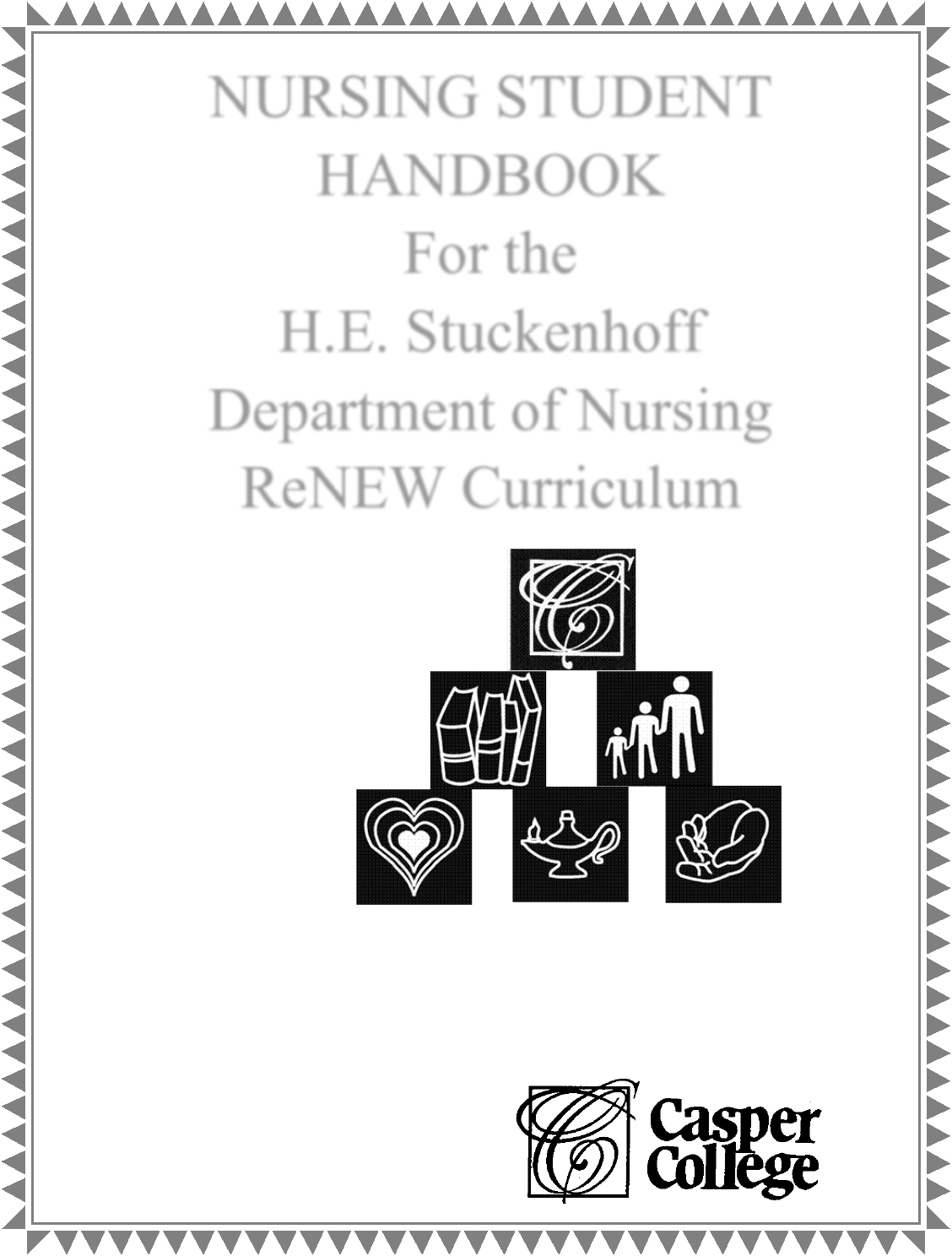
NURSING STUDENT
HANDBOOK
For the
H.E. Stuckenhoff
Department of Nursing
ReNEW Curriculum
Updated for 04/8/19

2
Accrediting agencies and national standards boards associated
with the Nursing program
Wyoming State Board of Nursing (2011)
130 Hobbs Avenue, Suite B
Cheyenne, WY 82002
(307)777-7601
Accreditation Commission for Education in Nursing
(Formerly NLNAC, National League for Nursing Accrediting Commission, Inc.)
(ACEN) (2011)
3343 Peachtree Road, NE Suite 850
Atlanta, GA 30326
P. 404-975-5000
F. 202-975-5020
www.ACENursing.org.
NONDISCRIMINATION STATEMENT
Casper College adheres to federal nondiscrimination standards. For more information see the catalog or
web site, or contact the human resources office at 307-268-2634.
3
Welcome! ………………………………………………………………………………………………………….
5
Admission, Progression, and Core Performance Standards …………………………………………………..
6
Health Science Core Performance Standards Table …………………………………………………………..
7
Casper College’s Emergency Response Guide ………………………………………………………….
8
Title IX ………………………………………………………………………………………………….
8
Digital Learning Academic Integrity Statement ………………………………………………………………
8
Health Science General Policy Statements and Procedures, School of Health Science Civility Statement
8
Clinical Accessibility Policy Statement ………………………………………………………………………..
9
Student Driver’s License and Automobile Liability Policy Statement ………………………………….
9
Health Insurance Policy Statement ……………………………………………………………………...
9
Social Media Policy Statement …………………………………………………………………………………..
9-10
Background Check and Drug Testing Policy Statement ………………………………………………………
10
Chemically Impaired Health Science Student Policy Statement …………………………………………….
10-11
Procedure for Alleged Chemically Impaired Health Science Student ……………………………………….
11-13
H.E. Stuckenhoff Department of Nursing Student Handbook ……………………………………………….
14-73
Introduction ………………………………………………………………………………………………………..
14
Location and History ……………………………………………………………………………………………...
14
ReNEW Mission Statement ……………………………………………………………………………..
15
ReNEW Vision ………………………………………………………………………………………….
15
ReNEW Philosophy of the Department of Nursing …………………………………………………….
15
ReNEW ADN Program Outcomes ……………………………………………………………………...
16
Assessment Results ……………………………………………………………………………………………….
17-18
ReNEW Conceptual Framework ………………………………………………………………………………..
19
Glossary of Terms ………………………………………………………………………………………………...
20-23
ReNEW Associate Degree Nursing (ADN) Benchmark Curriculum …………………………………..
24-25
Committee Members ……………………………………………………………………………………………..
26
Student Representation to Committees …………………………………………………………………………
26-27
Guidelines for Student Cohort Representatives ………………………………………………………………..
27
Nursing Organizational Chart ……………………………………………………………………………………
28
Channels for Resolution ………………………………………………………………………………………….
29
Channel Direction ………………………………………………………………………………………………...
29
General Policies …………………………………………………………………………………………
30-57
Code of Conduct …………………………………………………………………………………………………..
30-31
Misconduct Policy ………………………………………………………………………………………………...
31-32
Background Check ………………………………………………………………………………………………..
32
Drug Screening Policy ……………………………………………………………………………………………
33
Confidentiality …………………………………………………………………………………………………….
33
Attendance …………………………………………………………………………………………………………
33-34
Clinical Clock Hours vs. Clinical Credit Hours ……………………………………………………………….
35
Comprehensive Assessment and Review Program (CARP) …………………………………………………
35
Final Exam Testing Policy for Semester 2 and Semester 4 Nursing Students ………………………………
35
General Testing Policies ………………………………………………………………………………………….
36-37
Study Guidelines & Test-Taking Strategies ……………………………………………………………………
37-42
Accessing Grades – MyCCInfo ..………………………………………………………………………………
42-43
Clinical Evaluation ………………………………………………………………………………………………..
43
Classroom Evaluation …………………………………………………………………………………………….
43
Clinical Information ………………………………………………………………………………………………
43
Announcements …………………………………………………………………………………………………...
43
Cell Phone Use …………………………………………………………………………………………………….
44
Agency Requirements - Departmental and Community ………………………………………………………
44
Proof of Requirements for Semester I, Advanced Placement & Readmission Students …………………
44
Transferring and Lifting Patients/Residents …………………………………………………………….
44-45
Latex Allergy Policy ……………………………………………………………………………………………...
45
Injuries/Illness …………………………………………………………………………………………………….
45
Clinical Setting Waiver …………………………………………………………………………………………..
46
Letters of Recommendation and Information ………………………………………………………………….
47
Release for Student Letter of Recommendation and Information ……………………………………………
47
4
Simulation Activities ……………………………………………………………………………………………..
48
Dress Code …………………………………………………………………………………………………………
48-50
Classroom Dress Code ………………………………………………………………………………….
50
Medication Administration Recommendations for Students …………………………………………………
50
Estimated Expenses …..…………………………………………………………………………………………..
51-52
CNA Certification and LPN Licensure …………………………………………………………………………
52
Math Competency Policy ………………………………………………………………………………………..
52
Student Presentation Policy ……………………………………………………………………………………..
52-53
Appeal Process …………………………………………………………………………………………………….
53
Academic Progression Policy ……………………………………………………………………………………
53
Withdrawal Policy ………………………………………………………………………………………………...
54
Re-entry Policy ……………………………………………………………………………………………………
54
Second Admission to the Program ………………………………………………………………………………
55
Request for Re-entry to the Casper College Nursing Program ………………………………………………
56
Graduation Guidelines ……………………………………………………………………………………………
57
BSN Completion ………………………………………………………………………………………………….
57
Facilities for Instruction ………………………………………………………………………………………….
58
School of Health Science Simulation Center ……………………………………………………………
58
Clinical Laboratory Rules ………………………………………………………………………………………..
59
Multimedia Center (MMC) Procedure ………..………………………………………………………………..
60
MMC--The Rules …………………………………………………………………………………………………
61
Student Services/Activities ………………………………………………………………………………………
62-67
Academic Advising ……………………………………………………………………………………………….
62
Student Wellness Center …………………………………………………………………………………………
62
Counseling Services ………………….…………………………………………..
62
Student Health Services ………………………………………………………….
62
Accommodative Services ………………………………………………………………………………………...
62
Other Student Services …………………………………………………………………………………………...
62
Student Organization ……………………………………………………………………………………………..
63
CCSNA Guidelines for Attending Conferences ……………………………………………………………….
63
CCSNA Application to Nursing Conference …………………………………………………………………..
64
NSNA Conference Objectives …………………………………………………………………………………..
65
Lockers for Rent …………………………………………………………………………………………………..
66
CCSNA Student Locker Guidelines …………………………………………………………………………….
66
Nursing Scholarships ……………………………………………………………………………………………..
66
Policy for Dealing With Blood Borne Pathogens in Clinical Agencies …………………………………….
67
Wyoming State Board of Nursing Application for Licensure ………………………………………………..
68
Index ………………………………………………………………………………………………………………..
69
Student Agreement & Consent…………………………………………………………………………………...
70-72
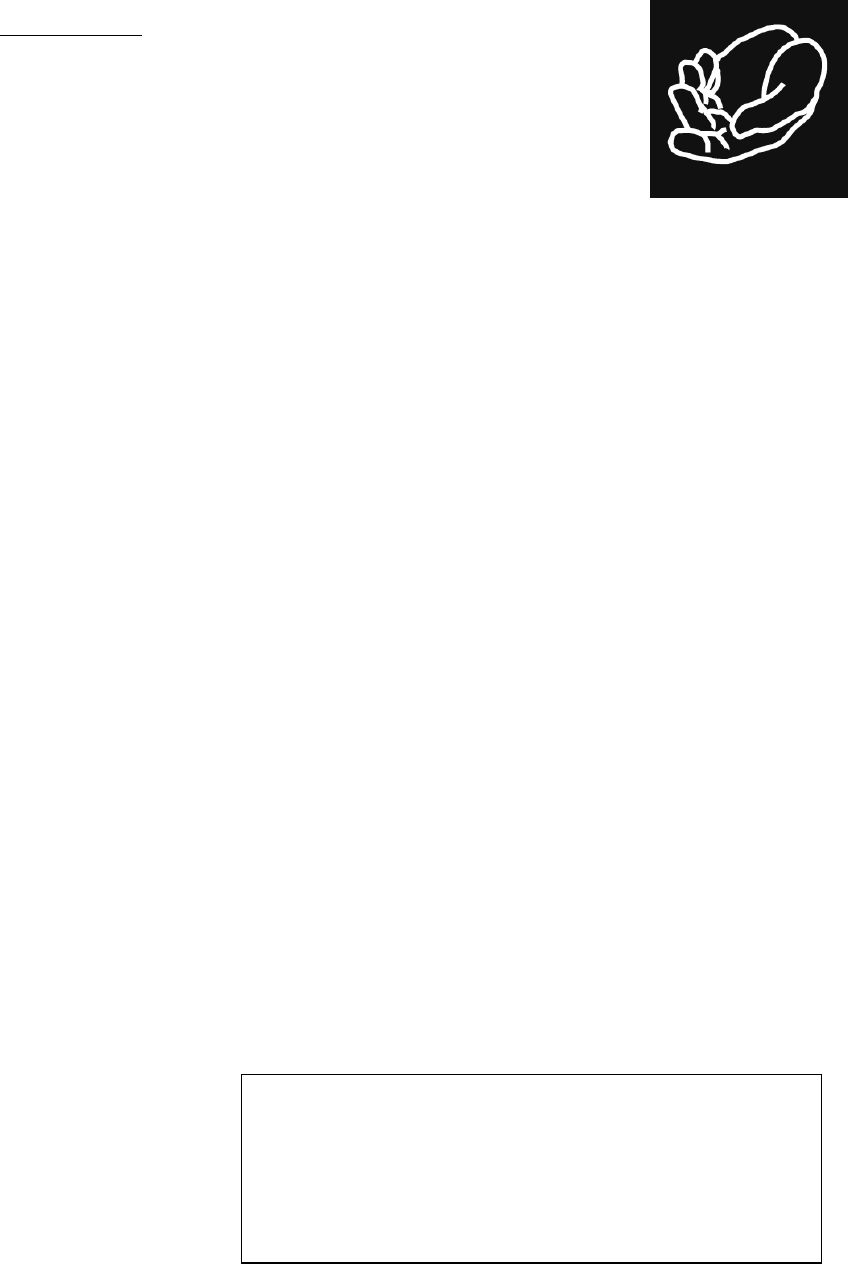
5
Welcome!
The nursing faculty of Casper College extends a warm welcome to you. We hope that your
coming years at Casper College will be meaningful. We want to assist you in every way in
attaining your goal of becoming a professional registered nurse.
The information contained in this handbook is meant to supplement the Casper College
Catalog and the student handbook published by the college. The current handbook will be
available on-line. Please refer to as needed. Changes to the handbook will be updated at
semester unless immediate notification is indicated. Students will be notified regarding
changes to the Student Handbook via Moodle e-mail or announcements in the General
Information for Nursing students (GINS) Moodle shell.
(8/17/17 – DON)
The first portion of the handbook addresses the Casper College School of Health Science
Admission Performance Standards, and Policies, and Procedures,
which applies to all nursing students.
The second part is specific to the H.E.Stuckenhoff Department of Nursing
for the ReNEW Curriculum.
The student is responsible for reading and understanding the material in this handbook.
Each student will sign an acknowledgement stating you have read and understand the material
contained in this handbook
Legend:
Revised /Reviewed Committees:
S- Student Handbook EC – Evaluation Committee
G- Guidebook CC – Curriculum Committee
F- Faculty Handbook RC – Resource Committee
CAT – Catalog TNF – Total Nursing Faculty
DON – Director of Nursing

6
Casper College School of Health Science
Admission, Progression, and Core Performance Standards
1. Students may take classes at Casper College as non-degree seeking students, but the
faculty recommend that those interested in Health Science programs apply as degree
seeking students. This allows the student to take full advantage of formal academic
advising.
2. To apply as a degree-seeking student, the applicant must:
a. Submit a completed Casper College application for admission to Enrollment
Services. Available online: www.caspercollege.edu A-Z index
b. Submit applicable transcripts, immunization records and test scores, see the
online catalog for specific eligibility requirements.
3. When the above documents are received, and the applicant is admitted, Enrollment
Services Office will invite the applicant to advising and registration.
4. For admission and progression in a Casper College Health Science Program, a
qualified individual is one who, with or without reasonable accommodation or
modification, meets the essential eligibility requirements for participation in the
program. All Health Science programs have a competitive selection process,
application deadlines and materials, and pre-requisite course work. Please review
the department’s online information at www.caspercollege.edu.
5. The Health Science fields are practice disciplines with cognitive, sensory, affective,
and psychomotor performance requirement. Based on these requirements, a list of
“Core Performance Standards” has been developed. These standards are part of
program courses, and some of the standards are more prevalent than others. These
standards will be used to assist faculty, the Program Director, and the School of
Health Science Dean in determining whether a student meets the essential eligibility
requirements for admission and progression in the program. These standards should
also be used to assist students in determining whether accommodations or
modifications are necessary for the student to meet program requirements. Students
who identify potential difficulties with meeting the “Core Performance Standards”
must communicate their concerns to the Accommodative Services Counselor as well
as the Program Director. Determination is made on an individual basis as to whether
a student meets the essential eligibility requirements or whether or not the necessary
accommodations or modifications can be made reasonably for participation in the
Health Science program.
6. For your safety and for the safety of patients, if you have any medical condition that
may require accommodations, work with your instructor, the program director, and
the office of Disabilities Services to discuss necessary accommodations. Examples
of medical conditions that may require accommodations include but are not limited
to autoimmune disorders, pregnancy, and acute or chronic health conditions.
7. All admitted Health Sciences students are expected to participate in simulation
activities and consent to video recording to optimize instruction and learning. All
learning activities associated with simulation are confidential.
8. Readmission into a Casper College Health Science Program or transfer between
Casper College Health Science programs is at the discretion of the faculty and dean.
The faculty and dean will base readmission or transfer decisions on the adopted
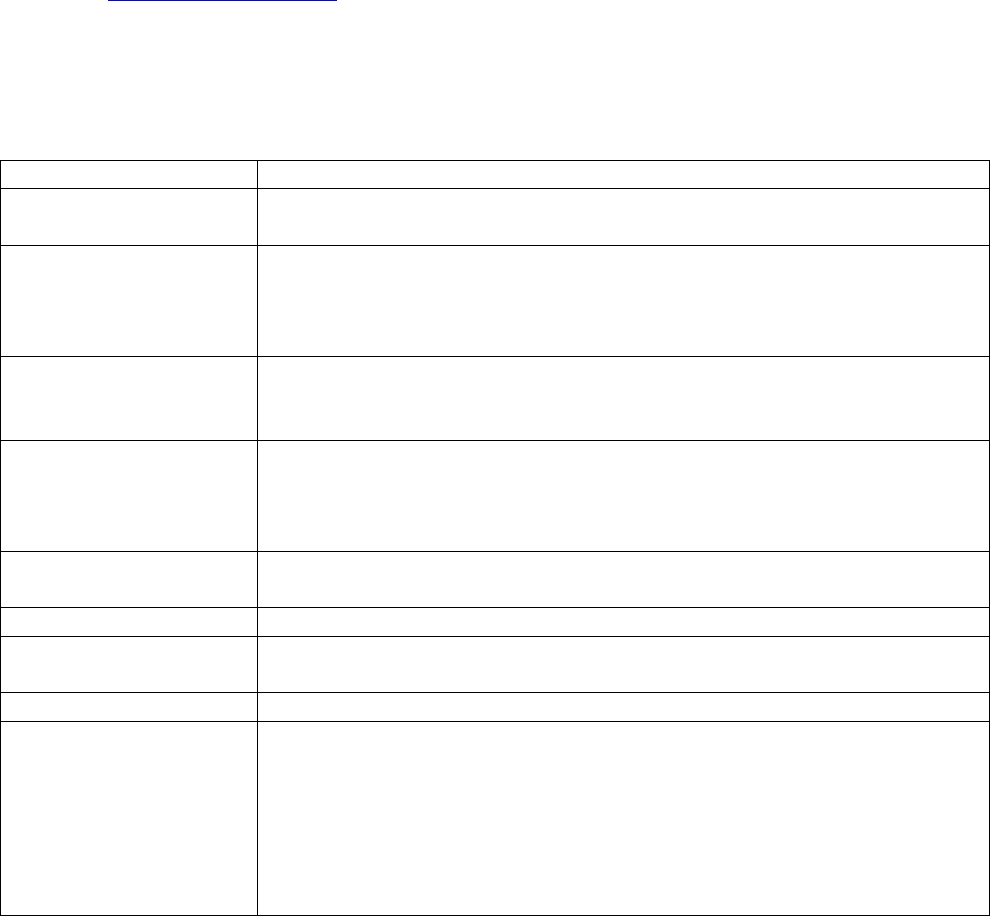
7
general Health Science “Core Performance Standards” and specific department
criteria.
9. All Health Science students should familiarize themselves with Casper College’s
Student Handbook and Student Code of Conduct found online at
www.caspercollege.edu as they are responsible for the content and compliance with
the policies and procedures.
Health Science Core Performance Standards
Table 1
ISSUE
STANDARD
Critical thinking
Critical thinking ability to exercise non-clinical and clinical judgment in a
timely manner
Interpersonal
Interpersonal abilities sufficient to interact professionally and
therapeutically with peers, faculty, staff, administrators, patients/clients,
families and groups from a variety of social, emotional, cultural, and
intellectual backgrounds
Communication
Communication skills sufficient for interaction with peers, faculty, staff,
administrators, patients/clients, families, and groups in verbal, nonverbal,
and written form
Mobility
Physical abilities sufficient to move from room to room, safely perform
treatments/procedures and assist patients/clients; lift and transfer
patients/clients; manipulate equipment; walk and/or stand for extended
periods of time
Motor skills
Gross and fine motor skills sufficient to provide safe and effective
patient/client care
Hearing
Auditory ability sufficient to monitor and safely assess health needs
Visual
Visual ability with or without corrective lenses sufficient for observation
and assessment necessary in safe patient/client care
Tactile
Tactile ability sufficient for physical assessment of patient/client
Professionalism
The ability to understand and demonstrate sufficient respect for others in
non-verbal, verbal, and written communication in the classroom,
laboratory, clinical settings, in the Casper College community, and in
public settings. The ability to demonstrate sufficient understanding of the
cumulative effect that behavior, appearance, and communication has on
the health science professional image.

8
Casper College’s Emergency Response Guide
The Casper College community, including students, should familiarize themselves with CC’s
emergency response guide and sign up for text alerts. Students should follow instructions
from faculty and building marshals for drills and emergency events.
http://www.caspercollege.edu/security/downloads/CC_emergency_response_guide.pdf
Title IX
Casper College is an equal opportunity institution and as such, does not discriminate on the
basis of race, sex, color, national origin, religion, age, veteran status, political affiliation,
disability, sexual orientation, gender identity, or any other characteristic protected under
applicable federal, state, or local law in admission or access to or treatment or employment in
its educational programs or activities. Direct inquiries or complaints to Linda Toohey,
associate vice president for student services at 125 College Dr, Casper, WY 82601, 307-268-
2667, or [email protected], or the U.S. Department of Education, Office for
Civil Rights, 1244 Speer Blvd, Ste 310, Denver, CO 80204-3582; 303-844-5695 or TDD 303-
844-3417.
Digital Learning Academic Integrity Statement
Casper College demands intellectual honesty in all courses. Only admitted and registered
Casper College Students who have been assigned logins and passwords are allowed access to
online and hybrid courses. These secure logins verify the identity of the student. Proven
plagiarism or any form of academic dishonesty associated with the academic process may
result in course failure, dismissal from a program, or expulsion from Casper College, or other
consequences. See the Casper College Student Code of Conduct for more information on this
topic.
Health Science General Policy Statements and Procedures
School of Health Science Civility Statement
School of Health Science Civility Statement*
Civility comprises a conscious demonstration of mutual respect – for people, for their roles,
for their knowledge and expertise. Civility requires cooperation, tolerance, acceptance,
inclusiveness, kindness, courtesy, and patience. It is expressed not only in the verbal and
written words we choose, but in our tone, demeanor, and actions. All School of Health
Science members are responsible for and expected to exemplify and promote civility. The
School of Health Science is committed to creating and maintaining a positive learning and
professional, working environment. While it is understood that disagreement will, and should,
occur in a collegiate setting, open communication, intellectual integrity, mutual respect for
differing viewpoints, freedom from unnecessary disruption, and a climate of civility are
important values that we embrace.
*Adapted from University Libraries Penn State University

9
Clinical Accessibility Policy Statement
Casper College Health Science programs utilize a variety of health care agencies in the
community for clinical experience for the students. If you have been employed in one or more
of the agencies and are not eligible for rehire as an employee, the agency may not permit you
to participate in the essential clinical component of the program.
Please contact the Human Resources department of the affected agency and request
documentation from HR that states the agency’s position on your participation in the clinical
component of the program. If you receive a negative response from the agency, you are
automatically ineligible to apply. A response indicating you will be permitted to attend
clinical in the agency will be given to the program director prior to the selection process for
admission to the program. If you are unable to fulfill clinical requirements due to a previous
employment issue or another issue(s) and have not complied with the above, you could be
denied entry in a Health Science program or be dismissed from program. Some programs do
not have clinical assignments until the second, third, or fourth semester; students who are denied
clinical accessibility at any time prior to or during a program will be dismissed.
Student Driver’s License and Automobile Liability Policy Statement
Health Science students are responsible for transportation to activities associated with their
program of study. This typically involves the utilization of a reliable, personal vehicle. All
admitted Health Science students must provide copies of a valid driver’s license and proof of
auto insurance card for their personal vehicles. The minimum auto insurance requirements for
Wyoming, or the state in which the vehicle is registered must be met. Students must maintain
both for the duration of their health science program, and may be asked to present proof at
any time during their program of study. To remain in compliance with this policy, students
must also notify the program director or faculty should their driving or insurance status
change at any time during their participation in a Health Science program. Health Science
students, parents, guardians, heirs and estate release Casper College, and any agent thereof,
of any and all legal liability which may accrue and understand that Casper College’s
insurance program will not cover any loss damage or claims incurred as a result of driving
their personal vehicles for requirements and activities associated with their program. Health
Science students understand and agree that they are wholly responsible for any other person
they invited or accepted as a passenger and release Casper College from any and all
responsibility and liability for passengers.
Health Science students who are unable to present a valid driver’s license and proof of auto
insurance card must sign an additional waiver provided upon request.
Health Insurance Policy Statement
Students enrolled in any of the health science programs are required to present proof of health
insurance and to maintain personal health insurance for the duration of their program. Students
may be required to present proof of health insurance at any time during their program of study.
Social Media Policy Statement
Prohibited Recording Device Use, Social Networking Participation, and Public Disclosures of
Care
10
To ensure compliance with both Federal and State student and patient confidentiality laws,
while also maintaining a professional working relationship with our clinical and/or field sites,
students are not allowed to utilize photographic, video, audio, or other recording devices
(including cell phones) during the course of their instruction or participation in the program
unless specifically permitted by instructional staff and affected parties, or as allowed by law.
The use of such recording devices is strictly prohibited during all classroom, laboratory,
simulation, clinical and/or field experiences.
Students are strictly prohibited from including or posting information pertaining to classroom,
laboratory, simulation clinical and/or field experiences on social networking websites or any
other type of internet, computer, or technology-based social networking site, electronic
bulletin board, blog, wiki, listserv, or equivalent media outlet.
Public scrutiny, criticism, or disclosure of patient care delivered by clinical and/or field site
staff/personnel is strictly prohibited, unless such disclosure is required or protected by law.
Such disclosures include those made via social networking sites, as well as other traditional
means of communication. If a student witnesses care issues at a specific site, such concerns
should be directed to their instructor.
As representatives of a Casper College School of Health Science program and aspiring
member of the medical community, students are held to a high standard of professional
conduct, including via social media. Students are required to adhere to all professional
conduct requirements of the Health Science programs within social media including but not
limited to social networking sites, blogs, message boards, chat rooms, and online forums.
A breach of any of these provisions could lead to an immediate dismissal from the program.
Background Check and Drug Testing Policy Statement
A. Students enrolled in any of Casper College’s health science programs will participate in
clinical experiences in a variety of agencies. Prior to participating in the clinical
experiences, students will be subject to that agency’s requirements for a background check,
immunizations, and drug testing and drug abuse prevention policies. Students are then
subject to the random drug testing policy of that agency.
B. Following graduation, several of the state and/or national licensing or certification (registry)
boards, may refuse to allow a graduate to sit for the required exam or issue a license or
certification to a person who has a prior felony conviction or proven history of drug or
alcohol abuse. Applicants to whom this applies should consult the program director for
further information.
Chemically Impaired Health Science Student Policy Statement
A. The faculty of the School of Health Science has a professional and ethical responsibility to
the student and clients. The faculty requires that health science students provide safe,
effective, and supportive client care. To fulfill this purpose, students must be free of
chemical impairment during participation in any part of the health science programs
including classroom, laboratory, and clinical settings.

11
B. The faculty defines the chemically impaired student as a person who, while in the academic
or clinical setting, is under the influence of, or has abused, either separately or in
combination: alcohol, over-the-counter medication, illegal drugs, prescribed medications,
inhalants, or synthetic designer drugs. Abuse of the substances includes episodic misuse or
chronic use that has produced psychological and/or physical symptomatology. This health
problem must be proactively addressed when identified within the health science student
population. Faculty will follow the college’s “Drug Free Campus Policy” as outlined in the
Casper College Student Handbook and Annual Campus Security Report. In addition, the
health science faculty will intervene with the chemically impaired student as outlined in the
established School of Health Science procedure.
C. The appropriate use of legally prescribed drugs and non-prescription medications is NOT
prohibited. It is the student’s responsibility to refrain from attending clinical while under
the influence of legal prescription or non-prescription medication that adversely affects
mental function, motor skills or judgment.
D. A legally prescribed drug means the individual has a prescription or other written approval
from a medical professional for the use of that drug in the course of medical treatment. A
confirmed positive drug screen resulting from a prescription medication must be verified.
Students shall inquire of the prescribing professional whether the drug prescribed has any
side effects which may impair the student’s ability to safely perform clinical
responsibilities. The misuse of legal drugs while performing clinical responsibilities is
prohibited. Students found misusing prescriptions will be referred for a mandatory
evaluation and treatment.
E. The health science faculty is cognizant of the various state board recommendations on
chemically impaired students who apply for licensure and will communicate this
information to students. Faculty recommends that on application for licensure the student
offers full disclosure of chemical dependence and extent of the treatment received.
Procedure for Alleged Chemically Impaired Health Science Student
1. Health science faculty or clinical supervisor is to gather and document data on behaviors.
If the student demonstrates impaired behaviors in the classroom, campus lab or clinical site
the faculty or clinical supervisor will:
A. Notify the director of program of the pending situation. The director will notify dean
and others as appropriate.
B. Remove the student to a private area and provide the opportunity for the student to
explain the observed behavior(s)
C. If on campus, notify security (2688) and request a drug/alcohol test, at the student’s
expense, if determined to be necessary. If patient/client care is involved, relieve the
student of the client assignment.
D. Students suspected of drug or alcohol use or who display obvious impairment will
NOT be permitted to return to class, lab, clinical or fieldwork assignments while
awaiting test results, and absence time will accrue. In the event that a student is
suspected of illegal drug or alcohol abuse through second hand knowledge, the
12
suspected student may voluntarily submit, at his/her expense, to a drug and/or alcohol
test to further clear any suspicion.
E. If no obvious impairment is displayed, the student may be allowed to attend lecture or
laboratory on campus while awaiting test results at the program director’s and/or
dean’s discretion.
F. A student’s refusal to submit to drug/alcohol testing will be considered failure to
comply with a reasonable request. At that time, the student’s actions would be
considered noncompliant with the program policies and would be grounds for
disciplinary action, and may result in termination from the program.
G. The student and director of the program will be notified of results.
H. The director will collaborate with the clinical site regarding substance-abuse policies
pertaining to student in the clinical setting, if applicable.
I. If the drug/alcohol test is negative, a student will be given an opportunity to make-up
clinical or fieldwork absence time.
J. If the drug/alcohol test is positive, a student will not be allowed make-up time for
clinical/fieldwork, and absence time will continue to accrue. Disciplinary action will
be taken and may result in termination from the program.
2. An information meeting will be scheduled prior to the results of the drug/alcohol testing, or
prior to disciplinary action.
3. Information Meeting
Involved health science faculty, the clinical supervisor(s), the director of the program, and
the student review the documentation of the alleged substance abuse and discuss the
procedures that will be followed for procedure implementation.
1. Make student aware of the faculty’s/ supervisor’s allegations.
2. Review the procedure.
3. Present documentation concerning student’s behaviors and provides the student with
opportunity to discuss the observations.
4. Documentation of the student’s behaviors, faculty’s recommendations for follow-up,
the student’s written response to the allegations, and the date and time for the
intervention meeting will take place at this meeting.
5. Documentation is dated and signed by the faculty/ supervisor (s), director of the program
and the student as soon as possible.
6. Original is placed in student file and copy is given to student.
7. If obvious impairment or admission of drug/alcohol use is determined, the information
meeting may be bypassed and/or become an intervention meeting. The student will be
removed from class, laboratory, and clinical assignments.
8. While waiting for drug/alcohol test results or professional evaluation plan, if no obvious
impairment is determined, a student may attend lecture or lab at the director’s and/or
dean’s discretion.
4. Intervention Meeting
A. Involves faculty/ supervisor (s) who identified the problem, appropriate faculty, the
student, a student support person, if desired, and the director of program. The purpose
of the meeting is to:
• Review the student’s behavior and classroom/clinical performance.
• Discuss the policy for impaired health sciences students and its implementation.

13
• Discuss the academic consequences related to the policy violation.
• Secure the student’s agreement to seek a comprehensive substance abuse evaluation,
and his or her expense, and to release the results to the program director and/or dean.
• Secure the student’s agreement via a FERPA release to allow the program director
and/or dean to discuss the student’s academics and behaviors with the health care
provider whom the student has chosen for the substance abuse evaluation.
B. Documentation is completed that articulates the problem behaviors, any academic
consequences, the student’s agreement to seek a professional evaluation, at his/her
expense, for a potential substance abuse problem, and the student’s understanding that
failure to abide by the recommended treatment plan will result in dismissal from the
program.
C. The director of program provides the student with information regarding a professional
evaluation, if requested.
D. The student may not attend program clinical or fieldwork until a professional substance
abuse evaluation and plan are obtained. The plan must align with clinical and fieldwork
accessibility policies for the program’s sites. If the plan does not align with the clinical
and fieldwork accessibility policies, the student may be terminated from the program.
A student may attend lecture or laboratory if deemed appropriate by the program
director, involved faculty, and/or dean.
E. If the student refuses to obtain an evaluation, s/he is dismissed from the program.
F. If the student tests positive, the student is dismissed from the program secondary to the
student being unable to continue at the clinical site.
G. The student, faculty and the program director sign documentation of the intervention
meeting and it is then placed in the student file with a copy provided to the student.
5. A “Student Grievance Procedure” is available in the Casper College Student Handbook and
Datebook if the student believes the allegation(s) regarding chemical impairment and the
outcome of the intervention meeting are not justified.
Dean of HS- 5/2018
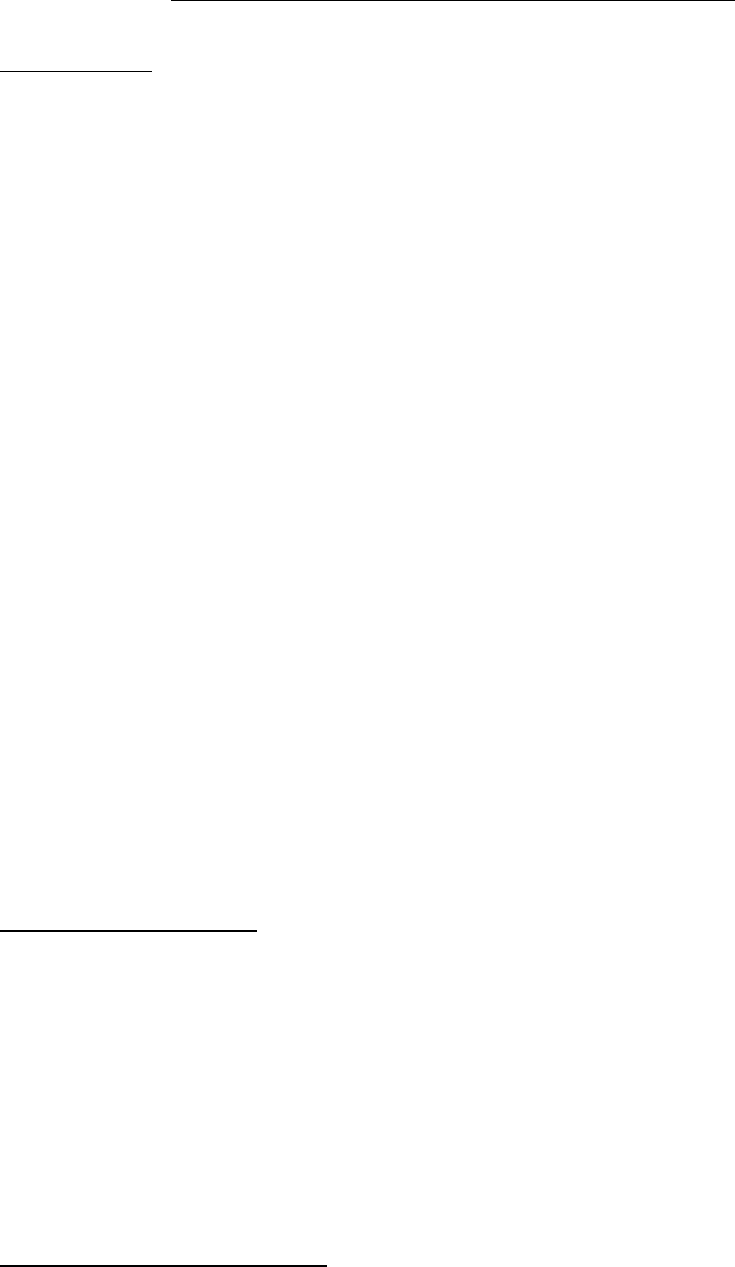
14
H.E. Stuckenhoff Department of Nursing
Introduction
The H.E. Stuckenhoff Department of Nursing offers a two-year program accredited by the
Accreditation Commission for Education in Nursing (ACEN).
The H.E Stuckenhoff Department of Nursing at Casper College has joined with the other
Community College Nursing programs and the University of Wyoming (UW) to develop a
common nursing curriculum for the state of Wyoming. The ReNEW (Revolutionizing
Nursing Education in Wyoming) curriculum is designed as a baccalaureate curriculum with
an Associate Degree benchmark. Under the ReNEW curriculum, persons who enter a nursing
program at a community college in Wyoming will be able to complete their ADN (Associate
Degree in Nursing), take the national licensure exam (NCLEX-RN) and begin working as a
registered nurse. The long term benefit of the ReNEW curriculum is the ability for ADN
graduates to move seamlessly toward their baccalaureate degree through online classes in two
additional semesters if the BSN prerequisites have been met.
To progress to UW and complete the BSN program students must meet the following criteria:
• Be conferred the ADN from a ReNEW community college program
• Pass the NCLEX-RN
Or
• Have a 3.0 in nursing courses deferring the NCLEX-RN until graduation from the
BSN program
It is recommended that all students consult a UW adviser as they progress through the ADN
program in order to pursue their BSN.
Persons who change to a different major may need to take additional general education courses
to meet the AS and AAS degree requirements if they were admitted into the ReNEW
curriculum.
Revised 8/10/16 DON
Location and History
Casper College is located at the foot of Casper Mountain on the southern edge of the city of
Casper, Wyoming. Situated near the center of the state and at the hub of Wyoming's road and
highway system, the college is convenient to a wide area of central Wyoming. It draws students
from every county of the state, many states in the nation, and the international community.
The Casper College associate degree nursing program began in the fall of 1969 with an
enrollment of 37 students. The first class of 23 students graduated in the spring of 1971. There
are over 900 graduates employed as RNs throughout the state of Wyoming, various other
locations in the United States, and worldwide.
ReNEW Mission Statement

15
The mission of the Casper College H.E. Stuckenhoff Department of Nursing and ReNEW is
to enhance the quality of nursing and health care in Wyoming by revolutionizing nursing
education.
Adopted for ReNEW curriculum- TNF 2/12/15
ReNEW Vision
Shared, competency-based statewide curriculum where students can earn an associate degree
or continue seamlessly to the BSN degree (or higher) starting at any of the community colleges
or UW. The courses/clinical experiences needed to complete the BSN through the university
will be available through distance delivery.
Adopted for ReNEW curriculum- TNF 2/12/15
ReNEW Philosophy of the Department of Nursing
The nursing faculty subscribes to the stated mission, vision, values, and goals of ReNEW in its
entirety. We believe in the intrinsic value and worth of every person. We believe that health
is a state of homeostasis influenced by forces impacting on the person. Nursing is a practice-
oriented discipline that uses evidenced-based knowledge derived from the biological, physical,
and behavioral sciences to provide safe and humanistic care to persons, families, groups, and
communities. The art and science of nursing is the nucleus of the interdisciplinary health care
system. We believe the goal of nursing is to use the nursing process and clinical judgment to
promote and maintain health, prevent disease and disability, care for and rehabilitate the sick,
and support the dying. Nursing education must have a strong clinical focus and allow
opportunity to apply the theoretical component of nursing.
Learning is a dynamic lifelong process, occurring in the cognitive, psychomotor, and affective
domains. Learning is the joint responsibility of the educator and the learner with each assuming
the responsibility for learning and continued self-development. The role of the educator is to
facilitate learning and leadership by providing an environment wherein students have the
opportunity to establish goals, examine various means of attaining them, and evaluate the
course of actions selected. Practitioners of nursing have a responsibility for professionalism
and the mentoring of others. The nurse is a role model for clients, families, and communities
in terms of practicing appropriate health behaviors.
Update ReNew C & E 7/17

16
ReNEW ADN End-of Program Student Learning
Outcomes
Upon completion of the ADN program, the graduate will be expected to:
1. Provide safe nursing care within the healthcare system.
2. Incorporate prior knowledge, current research, and clinical experience in decision-making.
3. Demonstrate leadership skills as part of an interprofessional team to promote desired
outcomes.
4. Use effective communication and advocacy to provide individualized care.
5. Practice within the core values, principles, and standards of the nursing profession.
6. Utilize the nursing process and a broad knowledge base to maximize health.
ReNew C & E committee 8/17
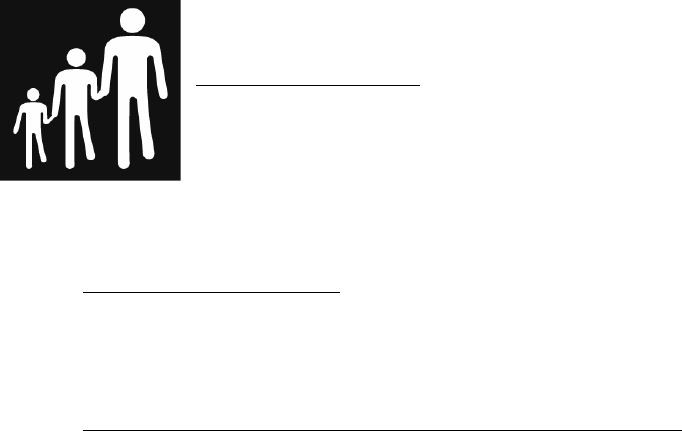
17
Assessment Results
Casper College Associate Degree Nursing Program uses the following criteria as measures of
the effectiveness of the program:
1. Admission Demographics:
There will be admission of eligible persons of diverse age, gender, socio-economic,
ethnic, and educational background. The number of students admitted will be
commensurate with faculty and facility availability.
2. Achievement of End-of-Program Student Learning Outcomes:
2.1 Provide safe nursing within the healthcare system.
i. At least 50 percent of students successfully completing NURS 2400 will score
greater than 3.5 on selected KSA (Knowledge, Skill, and Attitude) for Safety
on the Medical/Surgical Clinical Evaluation Tool.
ii. At least 70 percent of students successfully completing NURS 2400 will
achieve a 73-78 percent predicted passing probability on QSEN Safety items
for ATI RN Predictor examination.
2.2 Incorporate prior knowledge, current research, and clinical experiences in
decision-making.
i. At least 50 percent of students successfully completing NURS 2400 will score
greater than 3.0 on selected KSA for Clinical Judgement on the Medical
Surgical Clinical Evaluation Tool.
ii. At least 70 percent of students successfully completing NURS 2400 will
achieve a 73-78 percent predicted passing probability on Thinking Skills:
Clinical Judgment/Critical Thinking on the ATI RN Predictor examination.
2.3 Demonstrate leadership skills as part of an interdisciplinary team to promote
desired outcomes.
i. At least 50 percent of students successfully completing NURS 2400 will score
4.0 or greater on selected KSA for Leadership on the Medical/Surgical
Clinical Evaluation Tool.
ii. At least 70 percent of students successfully completing NURS 2400 will
achieve a 73-38 percent predicted passing probability on Leadership items
from ATI RN Predictor examination.
2.4 Use effective communication and advocacy to provide individualized care.
i. At least 50 percent of students successfully completing NURS 2400 will score
4.0 or greater on select KSA for Patient Centeredness on the Medical/Surgical
Clinical Evaluation Tool.
ii. At least 75 percent of students successfully completing NURS 2400 will
achieve a score of 3.0 or greater on the grading rubric for Outcome 4 in the
Portfolio Assignment Discussion of Core Competencies.
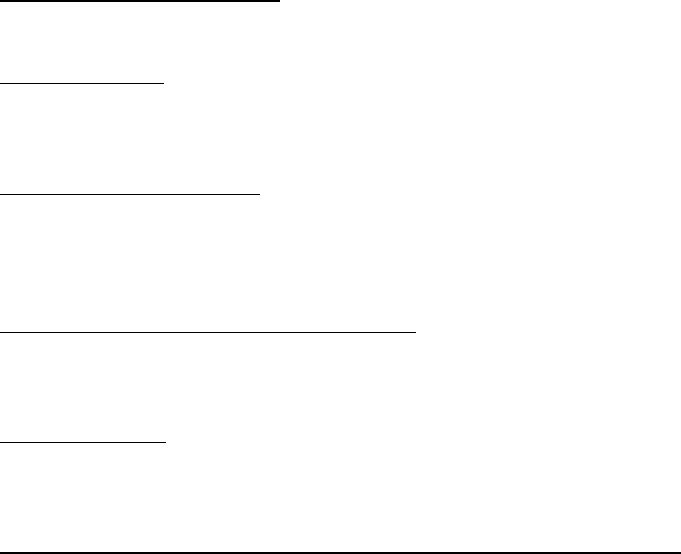
18
2.5 Practice within the core values, principles, and standards of the nursing
profession.
i. At least 50 percent of students successfully completing NURS 2400 will score
4.0 or greater on select KSA for Professionalism on the Medical/Surgical
Clinical Evaluation Tool.
ii. At least 75 percent of students successfully completing NURS 2400 will
achieve a score of 3.0 or greater on the grading rubric for Outcome 5 in
Portfolio Assignment Discussion for Core Competencies.
2.6 Utilize the nursing process and a broad knowledge base to maximize health.
i. At least 70 percent of students successfully completing NURS 2400 will
achieve a 73-78 percent predicted passing probability on Nursing
Process items for ATI RN Predictor examination.
ii. At least 75 percent of students completing NURS 2400 will achieve a
score of 3.0 or greater on the grading rubric for Outcome 6 for Portfolio
Assignment of Discussion Core Competencies.
3. Licensure Rate of Graduates:
There will be an NCLEX-RN pass rate of at least 80% for first time writers.
4. Graduation Rate:
At least 50 percent of those students who begin NURS 1100 or its equivalent will
successfully complete the ADN program within three years (six semesters).
5. Employment of Graduates:
At least 85 percent of new graduates returning the graduate survey who have sought
employment will indicate on the nine-month graduate survey that they are
employed in nursing.
6. Associate Degree Graduates Pursuing BSN
At least 60 percent of Associate degree graduates from Casper College will be
continuing their education with UW or another BSN program.
7. Critical Thinking
The group composite score on the ATI Critical Thinking Exit Exam during the 4
th
semester will meet or exceed the national group mean score.
8. Meets Standards of the College, Regulatory, and Accrediting Agencies
The program will continue to meet the standards of the College, the Wyoming
Community College Commission, North Central Association, the Wyoming State
Board of Nursing, and the National League for Nursing Accrediting Association
Commission.
Revised EC 12/18 –DON 1/9/19
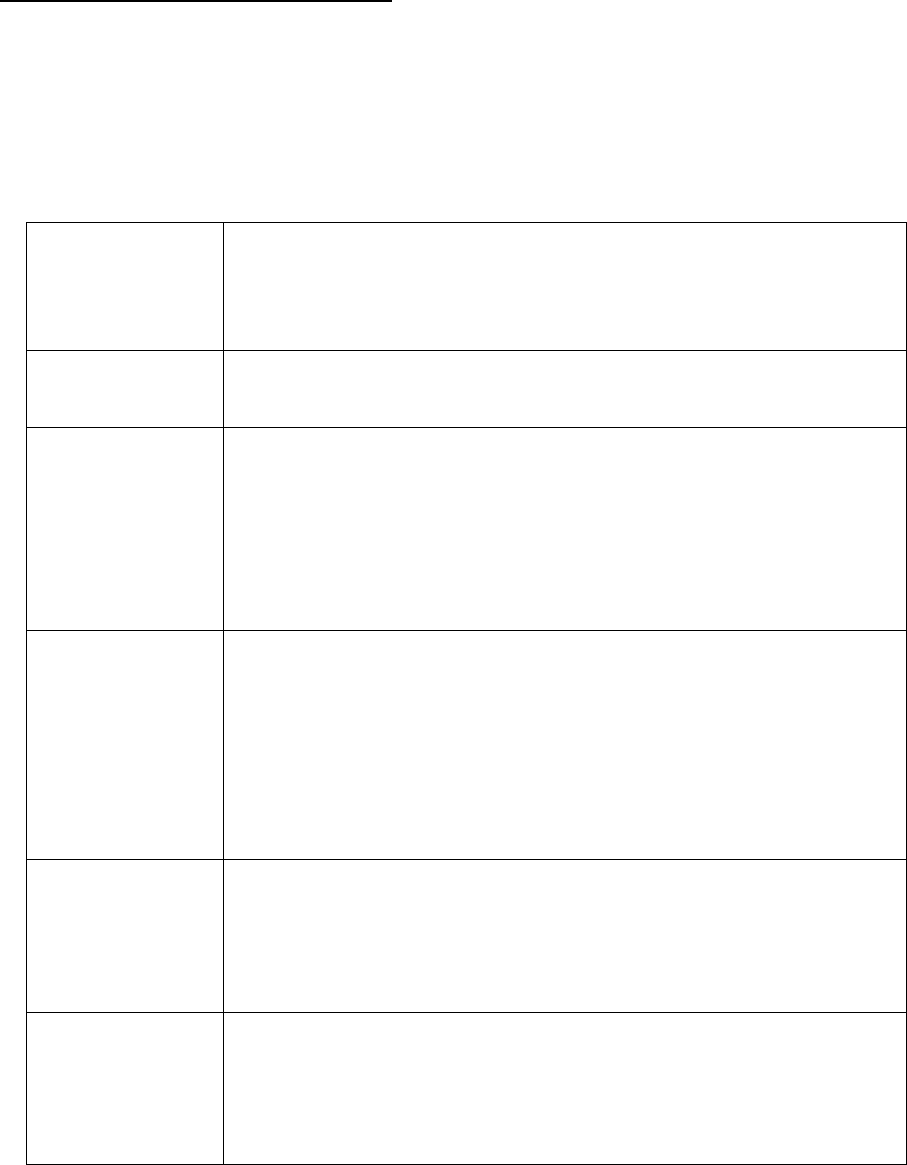
19
ReNEW Conceptual Framework
The conceptual framework guides curricular decisions within the nursing program. The college mission
statement, the program philosophy, and outcomes, and the wealth of educational and experiential
expertise of faculty members and others contribute to the diversity of the conceptual framework. The
core concepts of the ReNEW curriculum are basic to the discipline of nursing and include safety,
clinical judgement, leadership, patient centeredness, professionalism, and health promotion. These
concepts have their origin in numerous theoretical bases.
Safety
1. Minimize risk of harm to patients and providers through both system
effectiveness and individual performance.
2.
Advance nursing practice related to patient care technologies,
information systems, and communication devices that support safe
nursing practice.
Clinical Judgment
3. Achieve optimal individual, family, group, community, and population
outcomes guided by clinical reasoning and appraisal of evidence of
best practice.
Leadership
4. Demonstrate effective leadership through heightened self-awareness to
empower others in the attainment of optimal patient outcomes.
5.
Use mutually respectful communication, collaboration, and leadership
skills within interprofessional teams in the management of care in
diverse, complex, global, and dynamic healthcare systems.
6.
Participate as a nursing professional in the development and
implementation of healthcare policy, finance, and regulatory entities,
including local, state, national, and global healthcare trends.
Patient
Centeredness
7. Provide patient centered care by reflecting on the uniqueness of an
individual patient’s background, personal preferences, culture, values,
traditions, and family which promotes optimal health outcomes by
involving patients and families as they make clinical care decisions.
8.
Demonstrate respectful, efficient, safe, and well-coordinated
transitions of the patient through all levels of care.
9.
Provide respectful, efficient, safe and well-coordinated patient
centered care to populations by reflecting on beliefs, values, attitudes,
and practices.
Professionalism
10. Model professionalism with consistent demonstration of core values
evidenced by nurses working with others to achieve optimal health and
wellness outcomes in patients, families, and populations by wisely
applying principles of altruism, excellence, caring, ethics, respect,
communication, professional engagement, lifelong learning, and
accountability.
Health Promotion
11. Encourage evidence-based health promotion and make a positive
contribution to immediate and long-term health status, through the
provision of education to individuals, families, groups, communities,
and populations that encourages healthy behaviors and choices,
prevention of disease, protection from preventable illness and
disastrous emergencies.

20
Glossary of Terms
accountable - the state of being answerable for one's actions
client/patient/resident - recipient of a health care service, to be used interchangeably as
applicable
clinical - settings in which students learn about and practice nursing care
clinical laboratory - experiences in nursing care in the on-campus laboratory
clinical practicum - experiences in nursing care in the following settings:
agency facilities and simulation
collaboration / - to function effectively within nursing and inter-professional
teamwork** teams, fostering open communication, mutual respect, and
shared decision-making to achieve quality patient care.
commonly recurring - disorders statistically most common to a geographic region,
health problems culture, gender, or age group
communication - a 2-way process involving the sending and receiving of
messages.
critical thinking - a nonlinear cognitive or mental process that involves rational
examination and analysis of all information and ideas and the
formulation of conclusions and decisions
cultural - related to a learned pattern of behaviors, beliefs, values, attitudes, and
practices shared by a specific group of people
delegation - transferring to a competent individual the authority to perform a
selected nursing task in a selected situation.
developmental - act or process of progressing in a prescribed manner
distance education - a formal educational process in which the majority (75% or more) of
the program instruction occurs when a student and instructor are not in
the same place (as defined by the Casper College Nursing department
Unit)
evidence-based - integration of best current evidence with clinical expertise and
practice (EBP)** patient/family preferences and values for delivery of
optimal health care
external - everything that surrounds the person that is
21
environment not part of the person
health - state of balance and harmony; the opposite of illness
health care - facilities, services, or providers of illness care (restorative)
system or health care (preventive) to the general public
hybrid courses - hybrid courses combine both classroom and on-line teaching and
learning. Hybrid courses meet in the classroom on a regular basis and
are supplemented with on-line lessons throughout the week, classroom
attendance is mandatory for all hybrid courses
holistic - the whole entity, pertaining to all aspects, which is more than the sum
of all its parts
homeostasis - a state of dynamic equilibrium
humanistic - concern for the welfare, values, and dignity care of persons
illness - a state of inadequate or absent adaptation
informatics* - the use of information and technology to communicate, manage
knowledge, mitigate error, and support decision making
interdisciplinary - involving two or more fields that are usually considered distinct
interpersonal skills - verbal and nonverbal means of exchanging information or feelings
between two or more people
learning - a process involving change in behavior that is acquired through practice
or experience
mentoring - a one-to-one, long-term relationship used as a strategy to facilitate the
ongoing development of nursing faculty, encompassing orientation to
the faculty role, socialization to the academic community, development
of teaching skills, and facilitation of the growth of future leaders in
nursing education (adapted from the NLN position statement on
Mentoring of Nurse Faculty issued by the Board of Governors, January
28, 2006)
nursing - the discipline responsible for protecting and promoting health and
abilities, preventing illness and injury, and advocating for the person
through the diagnosis and treatment of human responses to actual or
potential health problems.
nursing care - application and utilization of the nursing process
22
nursing process - a systematic method which allows for flexibility and creativity in
applying nursing knowledge for the purpose of solving nursing
problems. The process consists of five components:
1. assessment - the process of collecting and organizing data from a
variety of sources;
2. nursing diagnosis - a statement which identifies actual or potential
problems within the scope of nursing;
3. planning -the specification of outcomes and interventions designed
to resolve the client's problems;
4. implementation - the execution of interventions which work toward
meeting planned outcomes;
5. evaluation - the appraisal of client response to nursing
interventions considering progression toward outcome
achievement.
outcomes - the predetermined result or consequences of nursing action
patient-centered care **- care which recognize the patient or designee as the source of control
and full partner in providing compassionate and coordinated care based
on respect for patient’s preferences, values and needs
person - any member of the human race without regard to age, gender, or
national origin who is an interacting open system; a composite of
physiological, psychological, sociocultural, developmental, and
spiritual dimensions
physiological - bodily structure and function
preceptor - an expert or specialist who gives practical experience and training to a
student.
psychological - mental processes and relationships
quality - the use of data to monitor the outcomes of care processes improvement
(QI)** and use improvement methods to design and test changes to
continuously improve the quality and safety of health care
systems.
responsibility - the sense of being reliable and trustworthy and functioning within a
prescribed role
role - the pattern of behavioral responses to a person or social group with
whom an individual interacts in a particular situation
safety** - practice that minimizes risk of harm to patients and providers
through both system effectiveness and individual performance

23
sociocultural - combined sociological and cultural functions
sociological - roles and identities within a group
spiritual - the influence of metaphysical beliefs
standard nursing - measures that are established by nursing
interventions authorities that implement specific objectives
web-enhanced - students meet face-to-face during scheduled hours and have resources
and/or activities available in an online environment to augment
traditional instruction.
* adapted from Keating, S.B. (2006). Curriculum development and evaluation in nursing. Philadelphia: Lippincott
Williams and Wilkins.
** adapted from: Cronenwett, L., Sherwood, G., Barnsteiner J., Disch, J., Johnson, J., Mitchell, P., Sullivan, D.,
Warren, J. (2007). Quality and safety education for nurses. Nursing Outlook, 55(3)122-131. Retrieved April 24,
2010, from http://www.qsen.org/teachingstrategy.php?id=58
Revised: S, 4/29/10 EC, 5/6/16 TNF
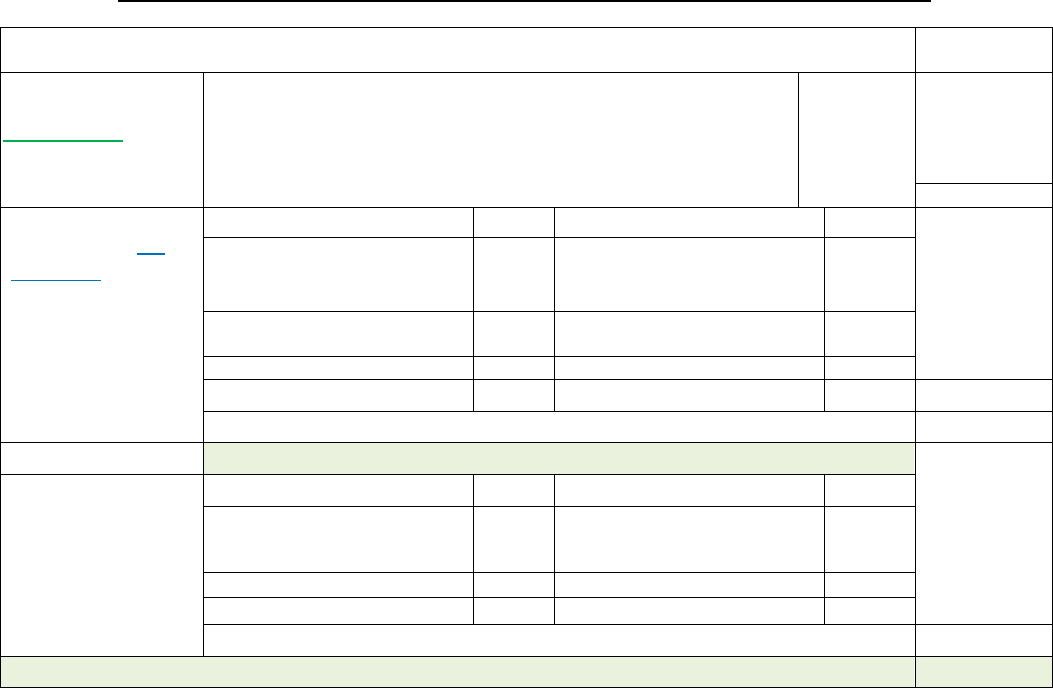
24
The H.E Stuckenhoff Department of Nursing at Casper College has joined with the other Community
College Nursing programs and the Fay W. Whitney School of Nursing at the University of Wyoming to
develop a common nursing curriculum for the state of Wyoming. The “Revolutionizing Nursing Education in
Wyoming” (ReNEW) curriculum is a baccalaureate nursing curriculum with an Associate Degree in Nursing
benchmark. Under the ReNEW curriculum, persons who enter a nursing program at a community college
in Wyoming will be able to complete their Associate Degree in Nursing (ADN), sit for the national licensure
exam (NCLEX-RN) and begin working as a registered nurse as they complete the ReNEW BSN. All
ReNEW Completion coursework from UW is delivered at distance. The majority of ReNEW Completion
coursework is available concurrently with the ADN Benchmark. All UW coursework can be completed after
earning the ReNEW ADN Benchmark.
Casper College
ReNEW Associate Degree in Nursing (ADN) Benchmark curriculum
Casper College Nursing ReNEW Curriculum Plan - ADN
Note: Proficient score or higher on TEAS necessary for application to program.
Total ADN
Credits
Prerequisites
Green courses are
prerequisites for the
ADN Program.
ENGL 1010 : English Composition I
MATH 1400 : Pre-Calculus Algebra
ZOO 2040 and ZOO 2041 : Human Anatomy/Lab (or equivalent)
HMDV 1300: On Course
HLTK 1300 : Nursing Boot Camp
3
4
4
2
1
Total credits
14
ADN Year One
Blue courses are co-
requisites (or may be
taken with BSN
prerequisites**)All blue
courses are available at
Casper College
Semester 1
Credits
Semester 2
Credits
NURS 1100 : Professional Nursing
Care in Health Promotion
10
NURS 1200: Professional Nursing
Care of the Patient with Chronic
Illness
10
ZOO 2110: Human Physiology
(or equivalent)
4
PSYC 1000: General Psychology
3
CMAP-1550 e-Portfolio
1
Total Semester Credits
15
Total Semester Credits
13
28
Total credits
42
Completion of all requirements to this point meets benchmark for optional PN Certificate
ADN Year Two
Semester 3
Credits
Semester 4
Credits
NURS 2300: Professional Nursing
Care of the Patient with Acute
Illness
10
NURS 2400: Professional Nursing
Care of the Patient with Complex
Illness
10
ENGL 1020
3
POLS 1000: US and WY Gov’t
3
Total Semester Credits
13
Total Semester Credits
13
Total credits
26
Associate Degree in Nursing Benchmark with Degree conferred. Total AND credits.
68
Students should be aware that changing from the Associate Degree in Nursing (ADN) to the
Associate of Applied Science (AAS) or Associate of Science (AS) in another Casper College program may
need additional courses to meet general education requirements of the degree.
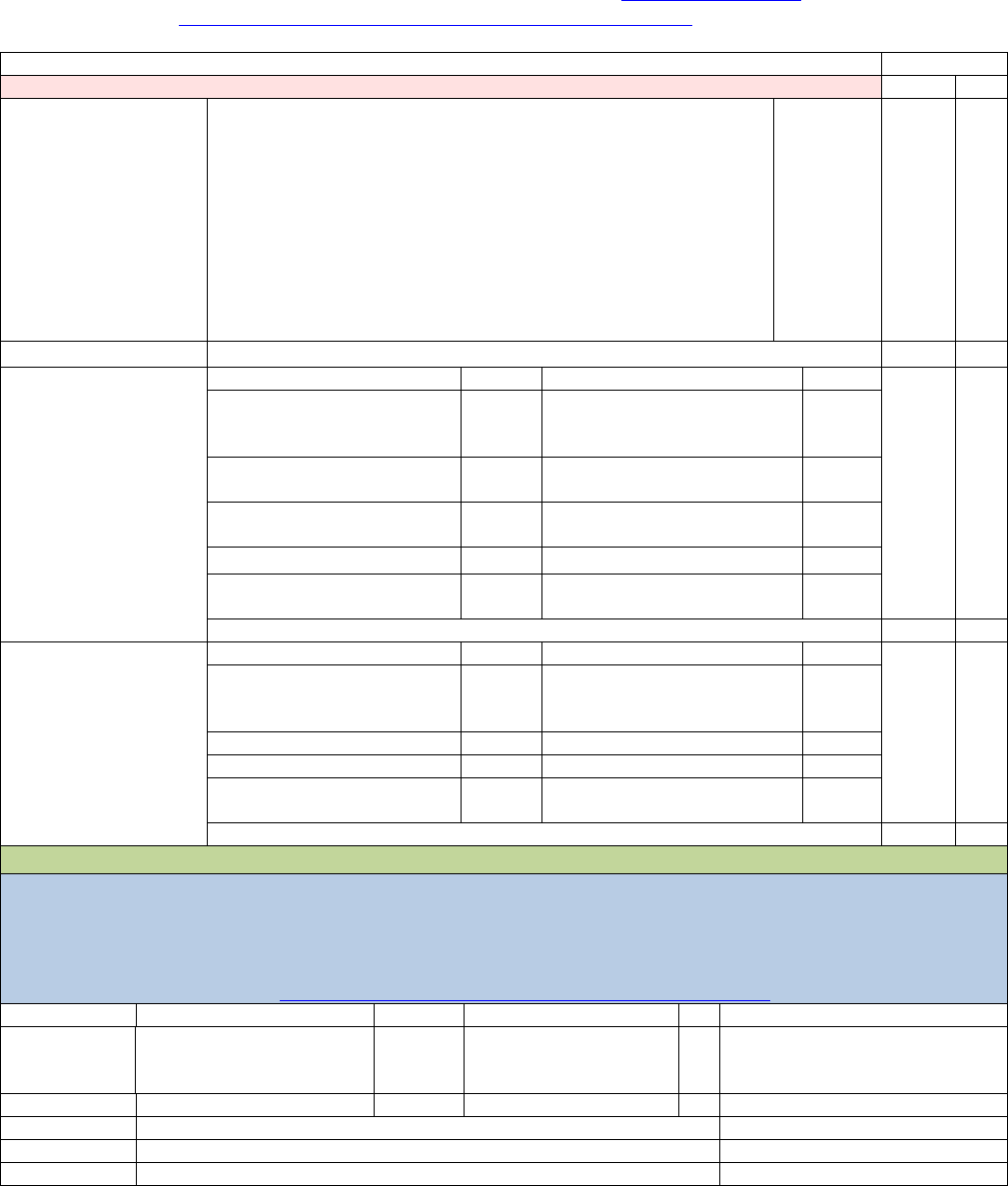
25
ReNEW BSN Completion at UW consists of three parts: 1) the ReNEW ADN Benchmark completed at a
Wyoming ReNEW program, 2) related coursework such as microbiology, nutrition, etc., and 3) UW ReNEW
Coursework. For individual planning, contact the FWWSON at:
ReNEW@uwyo.edu or visit the generic ReNEW
Plans of Study at: http://www.uwyo.edu/nursing/programs/renew/index.html.
For questions, please contact Marge Christiansen DON at (307) 268-2717, or email questions to
4/4/18 DON
ReNEW Nursing Curriculum Plan – ADN/BSN
Credit Totals
Prerequisites Semesters 1 and/or 2
ADN
BSN
Year One-prerequisites
Green courses are ADN
prerequisites.
Blue courses can be taken
at any time, or as second
semester of prerequisites
** for BSN though UW.
These are offered at
Casper College.
ENGL 1010 : English Composition I (COM1)
MATH 1400: Pre-Calculus Algebra
ZOO 2040 and ZOO 204: Human Anatomy/Lab (or equivalent)
HMDV 1300: On Course
HLTK 1300: Nursing Boot Camp
Biology 1010: General Biology** (must be taken prior to
Pathophysiology at UW)
Microbiology **
STAT 2050/2070**
Human Culture Elective**
3
4
4
2
1
4
4
3
3
3
4
4
2
1
3
4
4
[2]
[1]
4
4
3
3
Total ADN/BSN credits
14
25
ADN Year Two
Semester Two
Credits
Semester Three
Credits
28
35
NURS 1100: Professional
Nursing Care in Health
Promotion
10
NURS 1200: Professional
Nursing Care of the Patient with
Chronic Illness
10
ZOO 2110: Human Physiology
(or equivalent)
4
PSYC 1000: General Psychology
3
CMAP-1550 e-Portfolio(Co-
Requisite with NURS 1100)
1
FCSC 1141:Nutrition**
3
CHEM 1000/1020**
4
Total Semester Credits
15 18
Total Semester Credits
13
17
Total ADN/BSN credits
42
60
ADN Year Three
Red courses are
available at distance
through UW
Semester Four
Credits
Semester Five
Credits
26
34
NURS 2300: Professional
Nursing Care of the Patient
with Acute Illness
10
NURS 2400: Professional
Nursing Care of the Patient with
Complex Illness
10
ENGL 1020 (COM2)
3
POLS 1000: US and WY Gov’t
3
PHCY 4450: Pathophysiology**
4
PHCY 4470: Pharmacology**
4
Total Semester Credits
13
17
Total Semester Credits
13
17
Total ADN/BSN credits
68
94
ADN Benchmark – NCLEX eligible. Must attain RN licensure before allowed to take courses below.
ReNEW Completion Coursework:
• Delivered at distance through the FWWSON at UW
• Many courses available concurrently with ReNEW ADN
• Nursing Care of Populations and Nursing Leadership are delivered as 2-credit, half-semester blocks.
•
Generic Plans of Study: http://www.uwyo.edu/nursing/programs/renew/index.html
Semester Seven
Semester Eight
ReNEW BSN
Year Four
ReNEW Distance Foundations
Nursing Care of Populations
EBP (Com 3)
1
8
3
Nursing Leadership
Healthcare Informatics
10
3
Total Semester Credits
12
Total Semester Credits
13
25
Total ReNEW BSN credits
118
General Transfer credits
[3]
Total to meet UW 120 credit-hour requirement
121
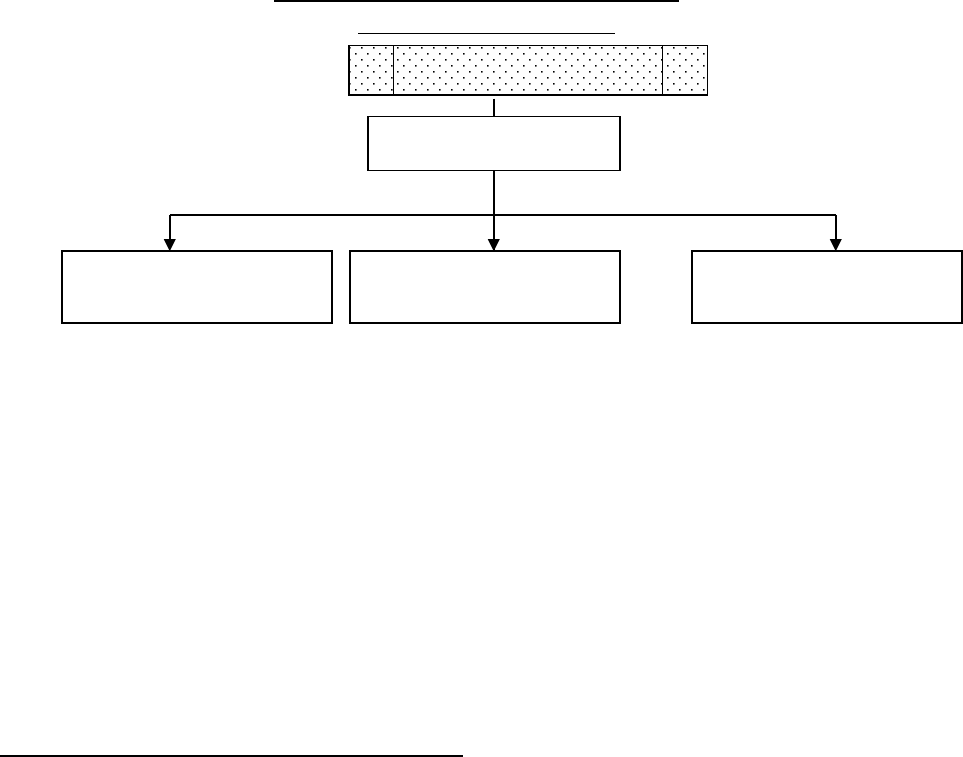
26
2018-2019 NURSING DEPARTMENT
Committee Members
Members
Faculty:
Members
Faculty:
Members
Faculty:
* T. Suhr (16-19
M. Madariaga (15-18)
V. Sorensen (17-20)
M. Christiansen
(ex officio)
* H. Loucks (14-18)
MJ Daniels (16-19)
K. Price (13-17)
L. Coulter (17-20)
M. Christiansen
(ex officio)
* P. Legler (14-17)
B. Hill (16-19)
M. Walden (17-20)
J. Peterson (17-20)
M. Christiansen
(ex officio)
Student:
Student:
Semester 2 Student
Semester 3 Student
Semester 4 Student
* Chairperson
Revised S, F – revised 8/18
– DON
Student Representation to Committees
Total Nursing Faculty – Associate Degree Nursing students are elected each semester to
represent their respective cohort to the Total Nursing Faculty, one from each semester, and
report student issues/concerns to the monthly Semester meetings. The semester cohort
representative will communicate with their semester faculty via e-mail and/or attendance at
monthly meetings. That information is to be presented to the Total Nursing Faculty by each
semester coordinator.
Curriculum Committee - the student member is a third semester nursing student in good
standing who is elected from the student body.
Evaluation Committee - the student member is a fourth semester nursing student in good
standing who is elected from the student body.
Resource Committee - the student member is a second semester nursing student in good
standing who is elected from the student body.
Revised 3/6/14 TNF
Executive sessions will be for faculty only.
Director of Nursing
Nursing Faculty
Curriculum
Committee
Evaluation
Committee
Resource
Committee

27
Department Committee representatives participate through attendance at monthly committees
meetings.
A schedule will be provided to representatives at the beginning of the semester.
Ensure that item brought to Semester Faculty represent the opinion of the majority of the
cohort and not the opinion of one or two students.
Updated 6/18 DON
Guidelines for Student Cohort Representatives
For Reports to the Total Nursing Faculty (TNF):
In order to prepare for semester meetings, the following guidelines have been provided.
The purpose of student representation at semester meetings is to provide a vehicle for dialogue
related to the overall nursing education program. You will bring your report from your semester
cohort to the Semester faculty meeting. That information is then brought before the faculty at
the following TNF meeting.
Individual concerns related to specific instructors /classes are to be handled according to the
chain of resolution which can be found in the student handbook.
Suggested questions for gathering student feedback could include:
1. What is working well in lecture? In lab?
2. What is not working well in lecture? In lab?
3. Are there any needs that are not being addressed?
4. If applicable, have changes that have been implemented proved to be helpful? If so,
how? If not, why?
5. Are there any other comments, situations or ideas that the students would like to
convey?
The faculty will report back to you following the TNF meeting. As the TNF Semester
representative, please be sure to convey information from the TNF meeting back to your student
group.
Thank you for your time and energy in this important role.
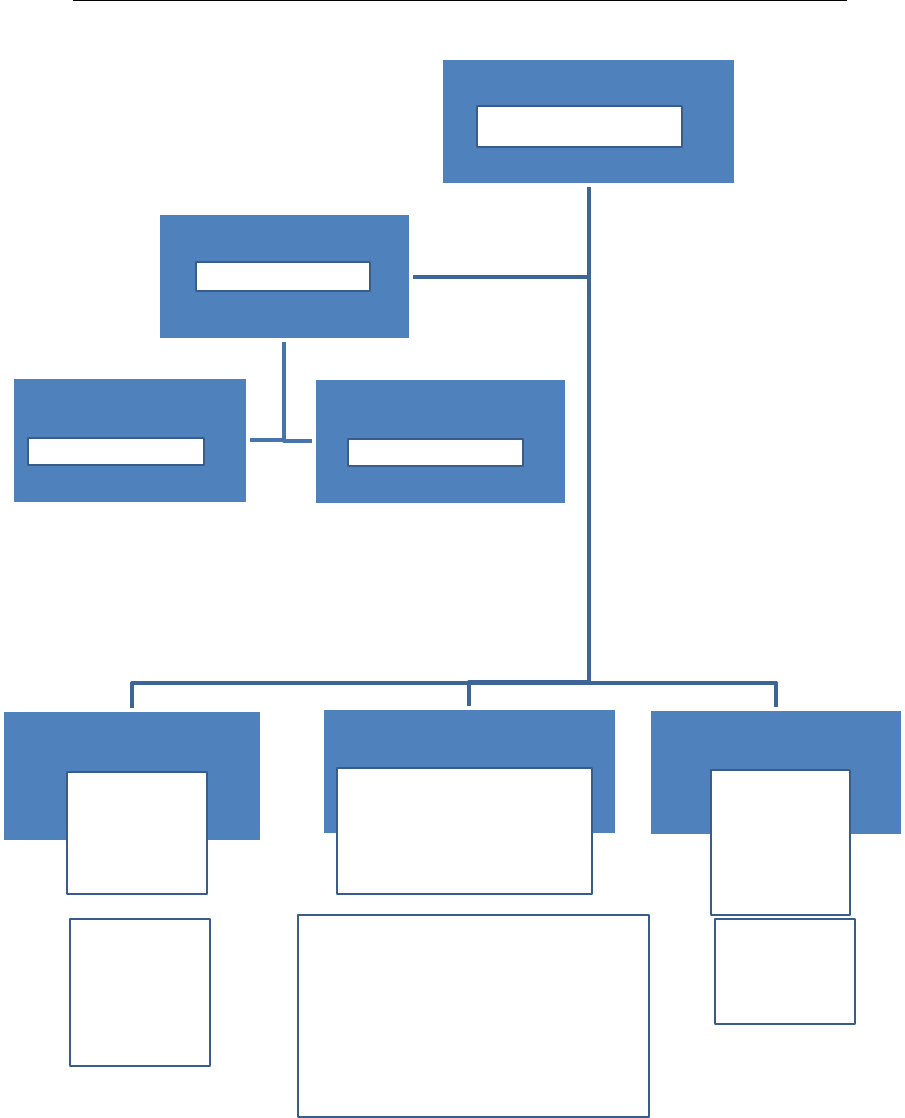
28
Nursing Organizational Chart for the 2018-2019 Academic Year
FS revised 1/19 mbc
Director of Nursing
Level I Faculty
Program Coordinators
Level II Faculty
Academic Assistant
Work Study Student(s)
Office Assistant
Marge Christiansen
Guadalupe Kerr
Nina Stairs
Student
ReNEW Curriculum Coordinator
Loucks
Simulation
Legler
Laboratory Coordinator
Sorensen
Simulation Facilitator
Sorenson
Semester 1
Daniels
Madariaga
Peterson
Sorensen
Semester 2
Corey
Coulter
Hill
Smith
Clinical Coordinators
Semester 1 – Daniels
Semester 2 – Hill
Semester 3 – Walden
Semester 4 - Loucks
Semester 3
Hope
Pisani
Suhr
Walden
Semester 4
Legler
Loucks
Price
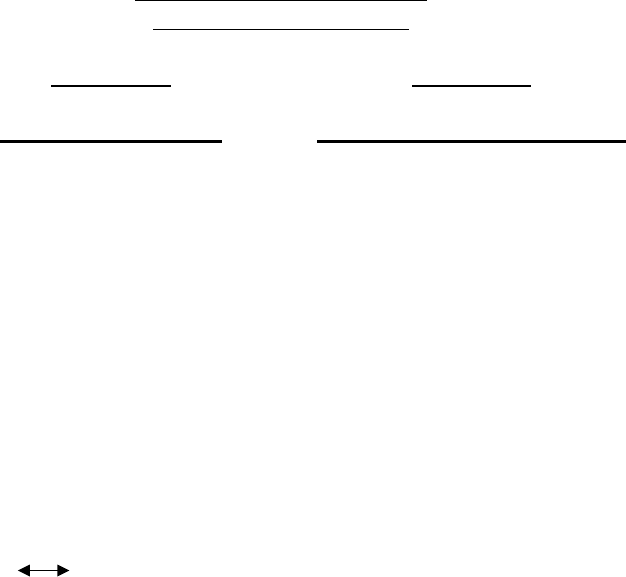
29
Channels for Resolution
School of Health Science
Situation 1:
Situation 2:
* Student / Instructor
* Student / Department Policy
Vice President for Academic Affairs
Total Nursing Faculty
Dean of School of Health Science
Student Representative for
Nursing Faculty
Director
Director
Clinical or Advisor
Coordinator (Classroom Issue)
(Clinical Issue)
Advisor
Instructor
Student
Student Student
Channel Direction
The student may bring a support person (i.e. family member, friend, peer) for nonverbal personal
support to any level of the channels of resolution.
* At any point in the chain, the student may seek advice from Student Services, with the
understanding that Student Services has no authority to adjudicate in academic issues. If the
student deems it necessary they may advance to the next step in the Chain of Command for
resolution.
Revised-RC – 4/13
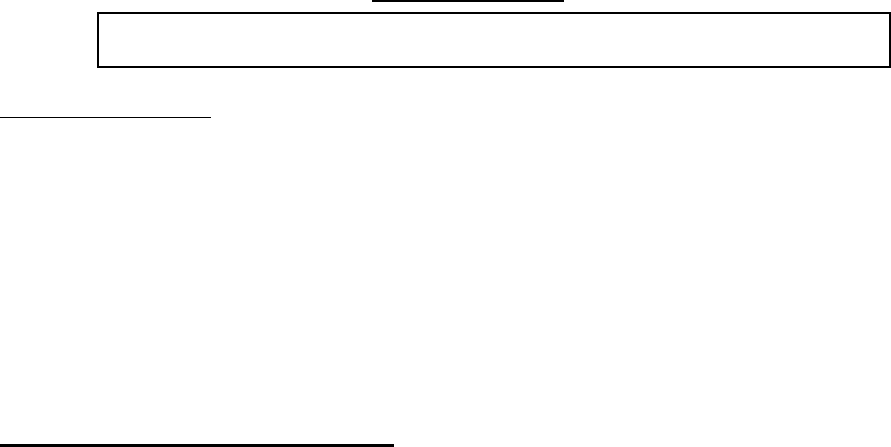
30
H. E. Stuckenhoff Department of Nursing
General Policies
Code of Conduct
Students of nursing have a responsibility to society in learning the academic theory and clinical
skills needed to provide nursing care. The clinical setting presents unique challenges and
responsibilities while caring for human beings in a variety of health care environments.
The Nursing Student Code of Conduct is based on an understanding that to practice nursing as a
student is an agreement to uphold the trust that society has placed on nursing as a profession. The
statements of the Code provide guidance for the nursing student in the personal development of an
ethical foundation and need not be limited strictly to the academic or clinical environment but can
assist in the holistic development of the person.
Code of Conduct for Nursing Students
As students are involved in the clinical and academic environments, ethical principles are a
necessary guide to professional development. Therefore within these environments the student
nurse is expected to:
1. Advocate for the rights of all clients.
2. Maintain confidentiality.
3. Take appropriate action to ensure the safety of clients, self, and others.
4. Provide care for the client in a timely, compassionate and professional manner.
5. Communicate client care in a truthful, timely and accurate manner.
6. Actively promote the highest level of moral and ethical principles and accept responsibility
for personal actions.
7. Promote excellence in nursing by encouraging lifelong learning and professional
development.
8. Treat others with respect and promote an environment that respects human rights, values and
choice of cultural and spiritual beliefs.
9. Collaborate in every reasonable manner with the academic faculty and clinical staff to ensure
the highest quality of client care
10. Use every opportunity to improve faculty and clinical staff understanding of the learning
needs of nursing students.
11. Encourage faculty, clinical staff, and peers to mentor nursing students.
12. Refrain from performing any technique or procedure for which the student has not been
adequately trained.
13. Refrain from any deliberate action or omission of care in the academic or clinical setting that
creates unnecessary risk of injury to the client, self, or others.
14. Assist the staff nurse or preceptor in ensuring that there is full disclosure and that proper
authorization are obtained from clients regarding any form of treatment or research.
15. Abstain from the use of alcoholic beverages or any substances in the academic and clinical
setting that impair judgment.
16. Strive to achieve and maintain an optimal level of personal health.
♦ Failure to comply with these policies will result in disciplinary action.
31
17. Support access to treatment and rehabilitation for students who are experiencing impairments
related to substance abuse and mental or physical health issues.
18. Refrain from any form of cheating or dishonesty to include sharing of information from
nursing exams or skills checkouts between students, and take action to report dishonorable
practices to proper authorities using established channels.
19. Refuse to engage in, or condone, discrimination on the basis of race, gender, age, citizenship,
religion, national origin, sexual orientation, or disability.
20. Uphold college and departmental policies, regulations and codes of conduct related to
academic and clinical performance, reserving the right to challenge and critique rules and
regulations as per school grievance policy.
Misconduct Policy
Student misconduct, whether academic or disciplinary, is in direct conflict with the principles and
philosophy of professional nursing. Student misconduct of any type will not be tolerated as it
lowers the standards of nursing practice, and consequently jeopardizes the safe provision of client
care, affecting the lives and well-being of the public.
For inadequate academic performance:
♦ Letters will be sent to students with failing grades at mid-term notifying them of their academic
status and possible course failure.
♦ This will include instructor suggestions that might enable students to successfully complete
the course.
♦ If applicable, a reminder of the course withdrawal date as stated in the individual course
syllabus, as well as the consequences of course failure should be included in the letter.
For inadequate clinical performance:
♦ Students are notified of deficiencies through clinical evaluations.
♦ Unsatisfactory clinical performance is dealt with according to the course syllabus and nursing
student handbook.
♦ Presentation before the clinical instructors may be necessary to determine the student’s status
and continuation in the course based in the student’s ability to meet the course outcomes and
provide safe client care.
♦ Procedures for student presentations are described in the nursing student handbook in the
Clinical Grading Policy as well as the faculty handbook in the Policies for Nursing Faculty.
Disciplinary misconduct stems from the student’s failure to comply with the H.E. Stuckenhoff
Department of Nursing Student Code of Conduct, the Casper College Student Conduct Code, or
with the college or any clinical facility’s rules and regulations. Examples of misconduct are
described in the Casper College Student Handbook and include, but are not limited to: cheating,
allowing access to information to support cheating, plagiarism, alcohol and/or substance use on
campus or in the clinical setting, and behavior not in alignment with the standards and ethics of
the nursing profession.
♦ The student will be notified verbally and/or in writing of the charges with specific reference to
the policy, rule or regulation allegedly violated.
♦ After notification, the student will provide a written response to the complaint.
♦ Initially a meeting between the student and the faculty member will be set within one working
day to attempt to resolve the problem.

32
♦ If the issue remains unresolved, the student will be presented before faculty in order to speak
on his/her own behalf.
♦ At that time, the student may give an explanation to the faculty or provide a defense against
the charges.
♦ This presentation will take place within three working days from the initial notification.
♦ The instructor has the authority to assign a failing grade or an unsatisfactory for the assignment
or examination, and/or an “F” in the course.
♦ Faculty may determine the need for further disciplinary action which may include probation,
suspension or permanent expulsion from the nursing program.
♦ Students may pursue further hearing procedures as described in the Casper College Student
Conduct and Judicial Code.
Student’s signature on the Student Agreement in the Nursing Student Handbook signifies that s/he
has read and agrees to uphold this Nursing Student Code of Conduct.
(adapted from the National Student Nurses’ Association, Inc. Code of Academic and Clinical
Conduct, which was adopted by the NSNA House of Delegates, Nashville, TN, on April 6, 2001.)
References:
Osinski, K. (2003). Due process rights of nursing students in cases of misconduct. Journal of
Nursing Education,42(2), 55-58.
National Student Nurses’ Association (2003). Code of Academic and Clinical Conduct. Retrieved
from http://www.nsna.org/pubs/index.html.
Reviewed – F,S – 5/09-EC, L3
Background Check
As a nursing student you are asked to complete additional requirements than are needed by the
general college student. One of these requirements is a background check. The background check
that is required of you includes the research in the following areas:
• U.S. County Criminal
• Residency History (additional counties will be searched, within the previous 7 years)
• Social Security Verification
• Nationwide Sexual Offender Registry
• Nationwide Healthcare Fraud & Abuse
• Nationwide U.S. Patriotic Act
This is an applicant funded process via the web site: https://www.castlebranch.com. The director
will receive your student badge from Castle Branch that contains holographic images and anti-
counterfeit technology that can be used to confirm that you have had a successful background
check. You will be given this badge to be worn in all clinical settings. It may be necessary to
repeat the background check yearly to comply with facility policies.
Revised– 8/16 -DON

33
Drug Screening Policy
All nursing students must be tested for drug and alcohol prior to beginning the hospital clinical
experience. Students are subject to random drug testing at clinical facilities. See the Chemically
Impaired Health Science Student policy, the Procedure for the Allegedly Chemically Impaired
Health Science Student, and the Intervention Meeting for policy application.
Revised– 7/14-DON
Confidentiality
Students and faculty are required to maintain client, family and peer confidentiality in every
setting. The client medical record is the property of the healthcare facility. Copies of the client’s
medical record shall not be removed from the agency premises without removing all client
identifiers. The only items allowed to be printed, identifiers removed, and taken from the facility
are: labs, medication list, and EKG strips. If a student is found to be in non-compliance, (i.e., not
removing identifiers), all students will lose the privilege to make copies of client information.
Breach of confidentiality could result in the student’s dismissal from the program.
Reviewed- S,G – 10/10-EC
Attendance
1. Casper College:
"Students are expected to attend all classes for which they are registered and are accountable
for all class work during an absence. Non-attendance at a required class, laboratory, rehearsal,
or field trip constitutes an absence. Excessive absences or tardiness may result in a lowered
grade, and at the discretion of the college administration, a student who fails to attend regularly
may be requested to withdraw from college." From: the current Casper College Catalog.
Refer to individual course syllabi for specific attendance criteria.
A student missing a test date and course material during jury duty will be accommodated on
an individual basis with testing being proctored as near to the original test date as possible and
instructors providing supportive assistance as needed for course material. (TNF 2-4-16)
2. H.E. Stuckenhoff Department of Nursing:
Clinical Absences
A. Due to the essential application of nursing skills in a clinical setting, students are expected
to be on time and attend all clinical labs & practicums (clinical sites and simulation) as
well as any associated pre- and post-conferences.
B. Students may be sent home and charged with absence if unprepared, ill, excessively
fatigued, or under the influence of any substance.
C. Students are expected to complete any research that may be appropriate prior to attending
any clinical lab or practicum.
D. Students who come to clinical unprepared may be sent home, and a clinical unsatisfactory
grade may be earned for the week.
E. Students must report all absences (or anticipated tardy arrivals) prior to each clinical
experience by phoning only the appropriate clinical instructor at least 30 minutes prior to
the scheduled start time of clinical practicum or campus lab. Students who demonstrate a
pattern of multiple absences will be accountable to semester faculty.
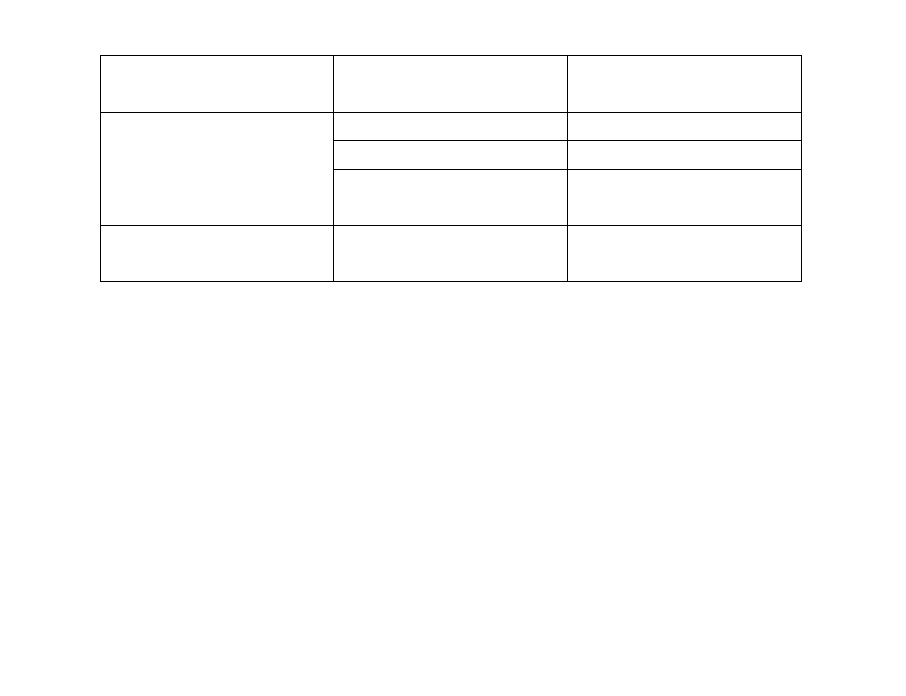
34
F. Absence time accrues in 15-minute increments in all cases (e.g. 1-15 minutes late will be
reflected as a 15-minute absence on the clinical evaluation).
G. Absence without notification will result in accrued absence time per policy and/or an
unsatisfactory grade for the clinical week:
1. First absence/tardy without proper notification will be addressed under “Role” and
will result in earning a “needs improvement” (NI)
2. Second absence/tardy without proper notification and will result in earning an
automatic unsatisfactory grade.
3. If absent without notification for greater than 30 minutes (no call, no show), an
unsatisfactory grade will automatically be earned.
H. Accrual of absence time begins anew each semester; however, problematic attendance
trends will be monitored across the semesters when within a given semester.
I. Clinical practicum absence time implications are as follows:
Course
Practicum Absence
Time (clock hours)
Make-up Time
NURS 1100
NURS 1200
NURS 2300
15 min – 4 hours
None
>4 hours – 12.5 hours
12.5 hours
>12.5 hours
Make-up time plus
presentation
NURS 2400
None, due to nature
of preceptorship
Rescheduled shift
The make-up time will consist of a complete 10 hours shift, with the location and time to
be determined by the DON and faculty. Because excessive absence impedes the
student’s ability to successfully meet course outcomes, students with absence time that
exceeds 12.5 clock hours will be presented to semester faculty to determine their status,
and if appropriate, a second make-up shift may be scheduled.
Due to the nature of nursing as a clinical-based practice, no more than two (2) make-up
shifts can be scheduled. A student may be administratively withdrawn from the nursing
program in the case of excessive absence and/or inability to meet course outcomes.
Absence time for campus lab will not follow the clinical absence time criteria. The
student will be responsible for learning the information missed and completing any check
off or assignments per faculty discretion.
Absences due to medical conditions will be reviewed on an individual basis. College
mechanisms for due process are preserved, (see current catalog for a complete description
of student rights and responsibilities).
J. If absent from clinical lab or practicum during the last clinical week, a primary care
provider’s written excuse will be required. Completion of a special written assignment
may also be necessary. The assignment must be completed and submitted to the
designated clinical instructor by the specified due date. Extenuating circumstances (i.e.
death in the family, accident, etc.) during the last clinical week will be evaluated by
faculty on an individual basis.
Revised – 12/18 CC/TNF
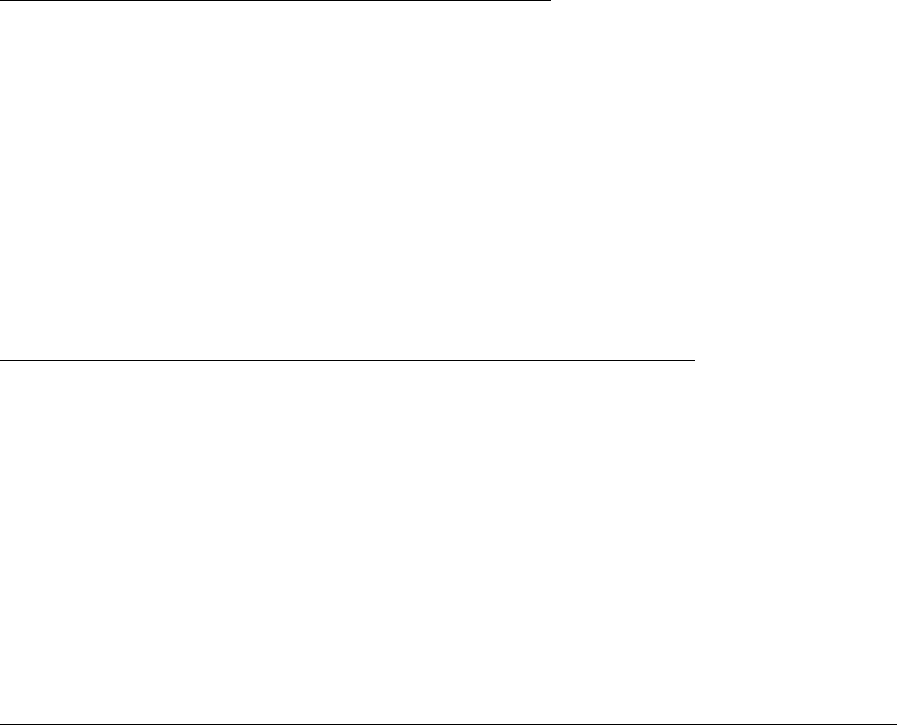
35
Clinical Clock Hours vs. Clinical Credit Hours
Casper College defines one (1) credit hour as 50 minutes of class time. Since clinical time is not
limited to 50-minute segments, but runs sequentially, the department defines that one (1) clinical
clock hour (60 minutes) is equivalent to 1.2 clinical credit hours. Students are in clinical 12.5
clinical clock hours per week and are given credit for 15 Clinical Credit Hours. To determine
how many Clinical Credit Hours are missed by a student when absent, use the following:
Each 1-15 minutes of clinical time = 0.3 clinical credit hours
Each 16-30 minutes of clinical time = 0.6 clinical credit hours
Each 31-45 minutes of clinical time =0.9 clinical credit hours
Each 46-60 minutes of clinical time =1.2 clinical credit hours
Revised 04/16 – CC/TNF
Comprehensive Assessment and Review Program (CARP)
The nursing program’s ATI’s Comprehensive Assessment and Review Program (CARP) assists in
preparing you for the NCLEX® by systematically strengthening your knowledge base throughout
your nursing education. The program is designed to increase pass rates on the NCLEX® and at
the same time assist you to pass the unit tests that are part of the nursing program. Each semester
you pay a fee to participate in this program and we strongly encourage you to engage yourself
toward facilitating your learning and test-taking skills. Part of the fee paid each semester goes
toward the cost of a live NCLEX review provided on campus by an ATI Nurse Educator in the 4
th
semester. Please note that ATI fees are non-refundable.
Revised 2/6/14 – EC,TNF , Revised 8/15, 8/16 DON
Final Exam Testing Policy for Semester 2 and Semester 4 Nursing Students
NURS 1200 students will take the ATI-PN Comprehensive Predictor Exam and NURS 2400
students will take the ATI RN Comprehensive Predictor Exam on the scheduled dates. This test
will be proctored and the students must test at the assigned time.
• Students earning 99% probability of passing the NCLEX are excused from the final exam
and awarded 200 points for the final exam
• Students earning below 99% probability of passing the NCLEX will be required to:
• Complete the ATI focused remediation.
• Take the second ATI Comprehensive Predictor Exam as scheduled in the course.
• Students earning 99% probability of passing the NCLEX on the second predictor exam are
excused from the final exam and awarded 180 points for the final exam.
• Students may opt to take the final exam and use the highest score - actual final or 180
points from ATI Predictor exam.
• Students earning below 99% probability of passing the NCLEX will be required to take the
final.
• Students earning below 90% probability of passing the NCLEX on the second predictor
exam are recommended to perform the appropriate remediation.
• Students who have missed a unit test must take the final exam to replace that score.
Revised 1/12 – EC, Revised 8/15 DON
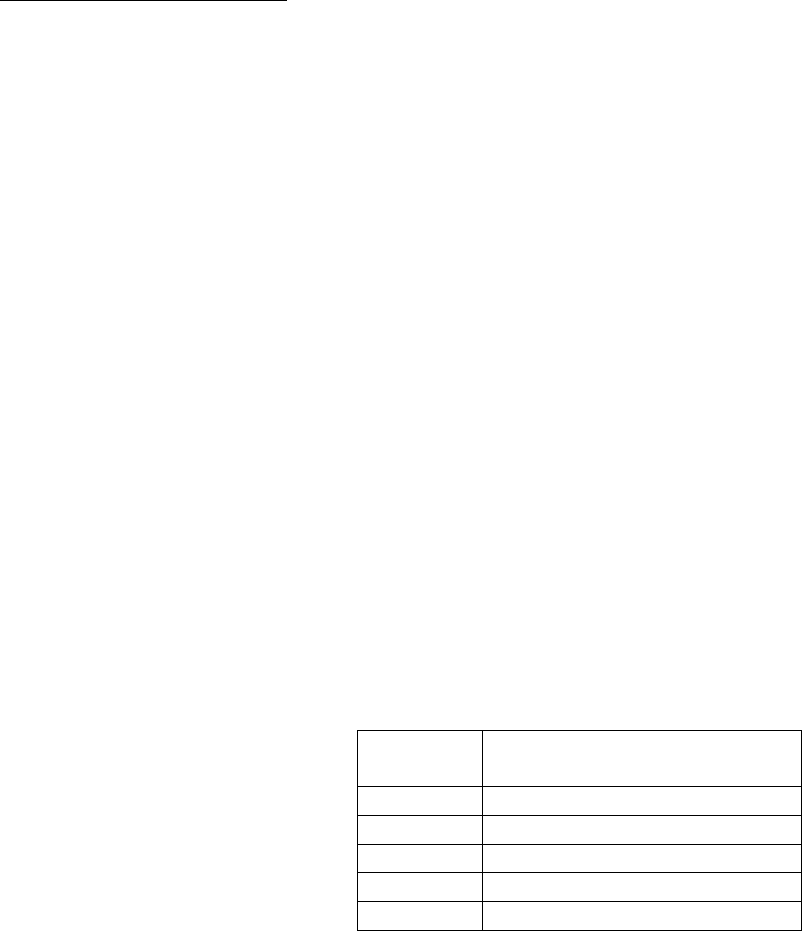
36
General Testing Policies
1. The course instructor(s) construct(s) the tests.
2. The course tests will be administered through Examsoft application software
3. Testing Practices:
A. One question per page:
The presence of more than one question per page is distracting to students. Students
should focus on the question at hand and provide the answer.
B. No option to return to previous questions:
Faculty have found that the temptation to change an answer has been detrimental to
student grades. The option to return to previous questions is not part of the NCLEX-RN.
C. Each test question will be given 1.5 minutes, so the time provided for unit exams will be
75 minutes (1 hour and 15 minutes). The final exam will be allotted 150 minutes (2 hours
and 30 minutes).
4. No make-up tests will be offered for any unit test. Points for a missed unit test will be added
to the value of the final exam. A missed unit test may be reviewed with the instructor per
policy.
5. Collaborative testing may be done following each unit exam with points awarded according
to group scores. If the student is absent the day of the scheduled collaborative test, the
opportunity for earning collaborative points is forfeited. Collaborative points will only be
awarded to a student who has earned 75 points or more on his/her unit test.
6. A list of content, lecture hours and the number of questions on each subject per unit test may
be distributed to students at the instructor’s discretion.
7. Questions are reviewed for effectiveness and nullification (all answers are accepted for
credit) at the instructor’s discretion.
8. Course points are outlined in the course syllabus. Point ranges correlate with the following
percentiles in determining grades:
Grade
Point range based on the
following percentage ranges
A
100-91
B
90-83
C
82-75
D
74-70
F
≤ 69
These percentages are used to determine grading point ranges for unit tests, midterm grades,
final exam and course grade point ranges. Please note the grading scale is based on a higher
standard than the campus at large.
9. You will not be allowed to take any NURS final exam until:
a. Property belonging to either the college or other agencies (i.e.- badges, etc.) has been
returned to the department of nursing.
b. All clinical evaluations have been signed.
c. Course evaluations are completed.
10. The following testing instructions apply to all exams:
a. All belongings must be placed at the front or the back of the classroom.
b. No baseball style caps or they must be turned around with bill to the back.
c. Jeans/pants with holes are not allowed.
d. It is recommended you use the restroom prior to starting the exam to avoid having to
take time during the exam. If you must get up to use the restroom during the exam, you

37
may not take anything with you, this includes phones, and a faculty member will
accompany you to the restroom. No additional time will be allowed on the exam.
e. Phones must be set to vibrate or turned off and cannot be used until after collaborative
testing is completed. For extenuating circumstances see your instructor.
f. Additional electronic devices (i.e., Smart Watches, etc.) are not allowed to be used or
worn during testing times.
g. A Webster’s dictionary will be available upon request during the exam. You must
show a course instructor the term you wish to look up and s/he will determine if that is
an appropriate term to be looked up.
h. You need to sit quietly after you complete your exam. You may not access the web or
use your computer for other activities, and you may not access books, notes or work on
other projects after you have completed your exam.
i. Keep your eyes on your own computer screen and protect your answers from others---
you may not record your answers on a separate piece of paper.
j. Put your name on your scratch paper. Keep your eyes on your own scratch paper and
protect it from others. Scratch paper must be submitted at the conclusion of each test.
k. You may review the test with your instructor within 2 weeks of taking the test. Please
make an appointment.
l. It is recommended that students failing any unit exam see the course instructor within
the two week review guideline.
In the event that a student challenges a test question, the student must submit a
typewritten document stating their rationale why their answer is the best answer to the
question in dispute. The student must provide reference to the course materials. This
rationale will be reviewed by both course instructors and either the director or the
curriculum coordinator. The document is to be submitted within two weeks of the date
of the test. On the 5
th
test all questions will be submitted within 48 hours after the test
and the reviewed prior to the final exam.
m. No reviews of final exams are allowed unless the student is unsuccessful in the course.
n. Food is not allowed during tests with the exception of hard candy per faculty
instruction, and beverages must be in clear containers.
o. No transcription error from scratch paper to test answer will be accepted.
11. Any disclosure of information from nursing exams or skills check-outs between students will
be considered a violation of academic honesty and may be grounds for expulsion from the
program and the college (Code of Conduct for Nursing Students, #18, in the Nursing Student
Handbook, and the Student Conduct Code: Article II.B.1.a. in the Casper College Student
Handbook).
Revised 8/18 TNF
Study Guidelines & Test-Taking Strategies
Test-Taking Strategies:
Strategies
The best strategy a student can take to a test is knowledge! Most of the questions on the exam
will require that the tester apply knowledge or analyze information.
That is why it is so important to prepare for nursing exams by taking questions provided by
Pearson My Nursing Labs, and ATI, and then reviewing topics you missed; building your
knowledge.
This question illustrates the power of knowledge:
38
A nurse is caring for an adult client admitted to the emergency department with a sprained right
ankle.
Which of the following nursing actions would be most appropriate to include in the client’s plan
of care?
1. Place an ice bag on the injury site for 30 minutes
2. Apply a moist cold compress to the right ankle for 45 minutes
3. Immerse lower extremity in a warmed solution for 15-20 minutes
4. Directly apply a heated water flow pad to right ankle for 20-30 minutes
In order to answer this question correctly, you must know:
· What happens to tissues when they are injured
· The physiology of inflammation: acute and non-acute stages
· Effects of cold and heat and prolonged exposure to both
Safe and Effective Delegation
Safe and effective delegation of tasks and client care assignments is extremely important when
setting priorities for client care. They do not allow for opinion and preference.
Follow them exactly so that the appropriate health care personnel are performing activities that
they can administer and are safely within their scope of practice.
The delivery of safe and effective care is always the driving force behind delegation of tasks and
client care assignments. Any other option will be incorrect.
"Nurture your mind with great thoughts; to believe in the heroic makes heroes." -Benjamin
Disraeli
Client Teaching
RNs perform all client teaching. No matter how simple the teaching, it still must be done by the
RN. PN’s may reinforce teaching.
"It is our choices that show what we truly are, far more than our abilities."
- J. K. Rowling
Assessment
RNs should perform all admission assessments so that an accurate baseline is established. This
includes the first set of vital signs, all aspects of the first physical assessment and a health
history.
Delegation and Assigning Tasks
Client care assignments are made by the RN not by support staff. Client care assignments should
remain unchanged unless there is an authentic issue of client care safety or a healthcare provider
safety is endangered.
Delegation to Assistive Personnel
A nursing assistant can perform tasks such as taking vital signs, range of motion exercises,
bathing, bedmaking, obtaining urine specimens, enemas and blood glucose monitoring.
39
Nursing assistants cannot interpret results or perform any task beyond the skill level of the
certification they received.
Communication
All communication between the RN and support staff should be direct, objective and complete to
ensure the highest level of safe and effective care delivery.
Delegating Tasks
The PN is managed under the supervision of the RN. Certain higher level skills can be delegated
after competency has been established by the RN (e.g., dressing changes or suctioning)
Read Carefully
Read the question and all answer options carefully . Make sure you pay attention to words in the
question stem such as “most important”, “first”, “initial”, or “last”.
Use these cues to help you select your answer, and make sure that the answer you select is
answering the question.
Is the question asking for an intervention, an assessment, or an evaluation? Choose your answer
accordingly.
Avoid Common Pitfalls
To avoid some common pitfalls when answering priority questions, be aware of the following:
Never perform ABC checks blindly without considering whether airway, breathing or
circulation issues are acute versus chronic or stable versus unstable .
For example, a client who is quadriplegic and on a ventilator has chronic airway/breathing
problems. However, if there is not an acute consideration such as pneumonia, the client
should be considered chronic and stable.
This client would not be the nurse’s first priority.
Focus
If you find it hard to focus while reading all answer options, try reading the options backwards
(start with “D” and work up to “A”).
Read rationales for questions carefully as you are studying.
Many students remark that they can get the answer choices narrowed down to 2 and then can’t
seem to pick the right one.
A good tip for improving your ability to pick the BEST answer is to read rationales for correct
answers and begin to understand WHY the correct answer is correct.
This will help you gain information that you can carry into future tests. Rationales provide
insight into how NCLEX “thinks”.
Don’t undermine the power of positive thinking
You have worked hard to get to this point in your nursing career and a large part of your success
on test day will be your belief that you CAN DO IT!!
40
Knowledge is power…review hard, take lots of questions, and do whatever you need to walk
into the testing center with confidence.
Application Exercises in Review Modules
The application exercises in your review module books are a great way to get more practice with
questions for each content area. Answer keys are provided right after each set of questions.
Answer each question and then read the rationale for immediate reinforcement of the concept.
Chose application exercises in Chapters that correlate with your topics to review from each
exam.
Early versus late
What do you know about questions asking you to identify early and late signs and symptoms?
You should know they all have something in common.
Early clinical manifestations are generalized and nonspecific, whereas late signs are specific and
serious. Eliminate incorrect answer choices using this strategy. (NCLEX TIPS)
Pre, post, and intra
You may be asked about complications associated with certain procedures. What should you do
if you know little or nothing about the procedure?
Pay attention to whether the question is asking about “pre-procedural,” “intraprocedural,” or
“postprocedural” concerns.
Eliminate the options that do not correspond to what is being asked. The correct answer may be
quite obvious when viewing the question from this perspective. (NCLEX TIPS)
Time elapsed
The priority nursing action will change based on the time interval stipulated. Obviously the
closer the client is to the origination of risk, the higher the risk for complications.
Sometimes the time issue will be stated in terms of hours or days. In other instances the physical
location of the client will tell you how long it has been since the origination of risk.
Watch closely for whether the client is in the “recovery room,” “postsurgical unit,” or
somewhere else.
The time issue buried in those words should help you eliminate incorrect answers that don’t
match what is being asked. (NCLEX TIPS)
Let Maslow’s hierarchy of needs be your guide
When taking the NCLEX®, or a nursing exam keep in mind that physiological safety will always
be more important than anything psychological.
You can eliminate answers based on the premise that physiologic safety must be established
prior to initiating therapeutic psychologic nursing actions.
If you lack knowledge about what do to in a certain situation, let Maslow’s hierarchy guide you
toward the correct answer.
Remember, the hierarchy starts with physiological needs and proceeds to safety and security,
then love and belonging, self-esteem and, finally, self-actualization. (NCLEX TIPS)
41
Remember: most complete = least room for error
You’ll encounter items on the NCLEX® that will ask you to choose the instruction or
documentation that is most accurate. What should you do if you don’t remember much about the
subject matter?
Choosing an answer that is most complete will typically result in the least room for error and
subsequent delivery of safe and effective care.
To help you determine which answer is most complete, evaluate answers based on how much
objectivity (fact) versus subjectivity (opinion) there is in the answer choices.
A specific value, like a blood pressure, is factual, whereas a client’s report of past incidences of
“high” blood pressure is subjective. Responses that are subjective are generally not correct.
(NCLEX TIPS)
Use What You Know
Graduate and student nurses taking nursing exams or the NCLEX ® have a tendency to focus on
what they don’t know rather than on what they do know. The ramifications of this mental
approach are devastating.
When you focus on your lack of knowledge about a particular topic, you are likely to become
anxious and start guessing or changing answers.
There is also a carryover effect that can reduce your ability to answer the items that follow the
item causing you distress. You might start losing confidence. When that happens, suddenly the
test begins controlling you.
You should pause, take a deep breath, try to relax and move on. Stay focused.
One of the most important factors in achieving NCLEX ® and nursing exam success is feeling in
control of the test. This comes from understanding the test construction and administration, and
systematically managing the test items. (NCLEX TIPS)
Words of Magnitude
Read the question and options closely for words asking about direction or magnitude.
For instance, stop and concentrate on the terms intra- versus inter- ; hyper- versus hypo
- ; increase versus decrease ; lesser versus greater ; and gain versus lose .
It is common to misread these terms by simply skimming over them too quickly. (NCLEX TIPS)
Cause no Harm
When in doubt, always choose a nursing action that could result in harm to the client if not
recognized.
Even if you don’t know whether it is related to the stem, it is still a life-saving maneuver that, in
all likelihood, is correct. (NCLEX TIPS)
Using Your Presence
Seldom will a correct answer have the nurse physically leave the client. Choose an answer that
keeps the nurse with the client. (NCLEX TIPS)
Ruling out an Answer Associated with Something Else

42
In some instances, rule out an option if you know it is associated with something else. For
example, you may not know about the labs for Coumadin therapy, but you do know the labs for
heparin and aspirin.
Those labs can be eliminated because you are “using what you know.” (NCLEX TIPS)
Pay attention to Communication Skills
Graduate Nurses taking the NCLEX-RN ® have a tendency to use the same communication
skills regardless of whether the client has anxiety, depression, schizophrenia, bipolar disorder or
obsessive-compulsive disorder.
Everyone wants to use empathetic listening and everyone wants to be caring. Unfortunately these
are not therapeutic responses for all disorders and every situation. Keep it very simple and apply
it correctly. Use what you know.
· Responses that are open-ended acknowledge the client’s feelings and seek more information.
This approach is appropriate for the client with anxiety, a knowledge deficit or depression.
· Reality orientation is important for the client with paranoia and delusions.
· Distraction is more appropriate for the client with obsessive-compulsive disorder. (NCLEX
TIPS)
Use the Nursing Process
Use of the nursing process can be helpful. Always remember to “assess” first . Even if your
knowledge of the topic is gray, you can still recognize that an answer choice is an “assessment”
rather than an “intervention .” (NCLEX TIPS)
Look for the layers
It would seem that life and death issues would be very easy to recognize in the text of a question.
Unfortunately, they are usually not obvious. Instead they are buried beneath words that, at first
glance, seem to bear no clinical significance.
To prevent glancing over these words and missing the most critical or impending symptom, you
will need to ask yourself “What could be the possible clinical significance of each answer
choice?” (NCLEX TIPS)
Go with your First Instinct
Your first response to a question is usually correct. DO NOT change your answers unless you
have a compelling reason for doing so.
Reference NCSBN- NCLEX Test Strategies and ATI
Revised DON 8/18
Accessing Grades
MyCCInfo:
1. Go to the Casper College homepage at www.caspercollege.edu
2. Choose “Current Students” near the top of the page.
3. Choose “myCCinfo” at the top of the page.

43
4. Follow the directions for inputting your username and password.
5. Then choose “Grades”
6. View your grades.
Clinical Evaluation
Semester 1, 2 and 3:
At the conclusion of each rotation, it is the student’s responsibility to complete facility and
instructor evaluations online using Moodle. Students will be excused from the clinical site 15
minutes early on the last day of the rotation for evaluation purposes. If a student does not
complete the evaluation process by the closing time, the instructor will be notified; it will be
addressed under “Professionalism” for incomplete paperwork; and 15 minutes of clinical
absence time will be accrued. Evaluations will be open during the final week of each clinical
rotation as defined by semester faculty.
Semester 4:
Clinical and preceptor evaluations are open throughout the rotations so that students can
complete them as they finish clinical hours.
Revised -8/17/17 DON
Classroom Evaluation
Course evaluations for those courses required following admission into the program will be
completed using Eval-Kit prior to taking the final exam. Casper College may collect samples of
student work demonstrating achievement of the Casper College general education outcomes. Any
personally identifying information will be removed from student work.
Revised 8/17 - DON
Clinical Information
In the fourth semester of the nursing program, clinical time is preceptor-based and thus the
clinical schedule requires flexibility. Based on agency placement, expenses maybe incurred.
G, S 04/13 – CC
Announcements
Students are responsible for checking the General Information for Nursing Students (GINS)
Moodle site at least one time each week for program announcements and information. Student
notification of specific program information or changes may be posted on announcements or sent
via e-mail through this Moodle shell. This site is kept updated by the Director.
Cell Phone Use
1. See also the Health Science Social Media Policy Statement.
2. While in clinical settings, students must adhere to the agency policy for cell phone use.
3. During campus lab only, students may keep their cell phones with them, provided the
device is set on vibrate mode.
Revised –6/17 DON

44
Agency Requirements - Departmental and Community
1. AMERICAN HEART ASSOCIATION HEALTHCARE PROVIDER/CPR - must
remain current throughout the nursing program. A course will be offered to incoming and
returning nursing students during the first few weeks of the semester.
2. PPD – will be required one a year. A chest x-ray or T-spot (within 1 year) is required if you
are a known converter. This may need to be repeated if it will expire during the duration of
the program. The clinical facility policy which requires specific or more frequent testing will
prevail.
3. Latex Allergy Questionnaire has to be completed upon starting the first semester.
4. Hepatitis series - has to be started upon entering the program and completed by the following
spring semester. Upon completion, proof of each injection must be submitted to the academic
assistant within seven days of the due date. Proof of hepatitis titer is acceptable for this
requirement.
5. MMR – proof of two (2) immunizations or positive titer has to be on file.
6. Evidence of current Health Insurance must be provided by the date specified by the DON
upon admission to the program. . The student acknowledges that he/she will maintain health
insurance while in the nursing program. (See also the School of Health Science Health
Insurance Policy Statement)
7. Chicken pox –proof of two (2) immunizations or a positive titer has to be on file.
8. Valid Driver’s License – two (2) copies must be provided upon entering program and upon
renewal during the program. (See also the School of Health Science Student Driver’s License
and Automobile Liability Policy Statement.)
9. Evidence of current Vehicle Liability Insurance must be provided upon entering the program
if the student will be driving to and from the clinical sites. The student acknowledges that
he/she will maintain vehicle liability insurance while in the nursing program when driving to
attend clinical experiences. (See also the School of Health Science Student Driver’s License
and Automobile Liability Policy Statement.)
10. A mandatory education packet, internet modules or orientation sessions may be required in
order to meet agency requirement for non-employees. These are due by the required dates as
indicated by the DON or faculty instructors.
11. Background Check– required upon entering the program and may be required yearly per
clinical facility policies.
12. Proof of flu vaccine per facility policies.
Revised 9/19/13 TNF, revised 8/16- DON
Proof of Requirements for Semester I, Advanced Placement & Readmission Students
Proof of all of the above will be provided by the date indicated by DON.
For all nursing students, there is no grace period for a lapse in any of the dated requirements
(Healthcare Provider CPR, PPD, hepatitis, insurance). If any of these requirements lapse, you will
not be allowed in clinical until proof of currency is provided. Absence time will accrue.
Revised – S – 08/18 DON
Transferring and Lifting Patients/Residents

45
Students assisting with ambulation, lifting and/or transferring patients/residents may be required
to attend in-service or training to comply with facility policies. Lifting and transfers are to be
completed per facility guidelines.
TNF 10/29/15 S-F-DON
Latex Allergy Policy - Student
It is the policy of the H. E. Stuckenhoff Department of Nursing to minimize the risk of an
allergic/anaphylactic reaction to latex, identify those at risk, and provide a latex safe environment.
Students accepted into the nursing program must complete the “Latex Allergy Questionnaire”
provided with their informational summer letter. Any student with a known latex allergy or
sensitivity will be required to sign a departmental release and is encouraged to consult with their
physician. If a latex allergy or sensitivity develops during the course of the student’s nursing
program, a departmental release must be again signed within two weeks of the occurrence.
The campus skills lab will routinely provide non-latex gloves for use.
Skills lab orientation will include identification of products containing latex.
Reasonable accommodations will be made for at-risk individuals whenever possible.
Non-latex student lab kits will be made available to latex sensitive/allergic students for
purchase. The cost of the kit will be the responsibility of the student.
Educational material will be available in the skills lab and in the brochure file located in the
main hall on the second floor of the Saunders Health Science Center.
Reviewed- F,S – 10/08 - EC
Injuries/Illness
Students, who are ill or injured, whether on campus or in the clinical settings, will be referred to
the college health service or appropriate medical facility. Agency Workers' Compensation
Insurance does not cover students in clinical settings. Emergency room and/ or medical expenses
incurred by the student are the financial responsibility of the student.
Students, with a history of a preexisting injury, a chronic health problem or one who sustains an
injury while a student, will be required to provide a physician's statement outlining any restrictions.
A medical release must be provided to the director of nursing for health related issues that could
impact a student’s clinical experiences and educational outcomes in the nursing program.
If the student has a medical release for the clinical setting but the restrictions on the release are not
realistic for safe client care, the student may elect to work in the clinical setting and provide safe
client care by signing a waiver that releases the college and faculty from any liability if the student
should be injured in the clinical setting.
If the medical release does not allow the student to participate without restrictions, and the student
chooses not to participate, absence time accrues from clinical per the department policy.
If the student is on medical leave due to physical injury or restrictions at their place of employment
the student needs to inform the director of nursing of the situation. A decision will then be made
as to whether the student may attend clinical.
Reviewed - 3/11 - EC

46
Clinical Setting Waiver
I, ___________________________, have a medical release to return to the clinical setting on
(Print name)
______________________ to continue my education in the nursing program at Casper College.
(date)
My medical release includes the following restrictions:
_____I will return to the clinical setting with the above stated restrictions and am signing this
waiver to acknowledge that Casper College and the H.E. Stuckenhoff Department of Nursing
have no liability should I sustain an injury providing client care. It is my sole decision to return
to the clinical setting with the restrictions the physician has indicated.
OR
_______I will not return to the clinical setting and understand absence time accrues and the
absence policy will be implemented.
____________________________ __________________________
(Student Signature) (Instructor Signature)
_________________________________ _______________________________
(Date)
(Date)

47
Letters of Recommendation and Information
In order for a faculty member to respond to a student request for a reference or letter of
recommendation, a departmental release must be signed and given to the faculty member. Please
obtain this release from the academic assistant or one of the faculty. This release along with a
copy of the reference or letter of recommendation will be kept in the student’s permanent file.
Reviewed – F, S – 10/08 - EC
H.E. Stuckenhoff Department of Nursing
Release for Student Letter of Recommendation and Information
This release is to be placed in the student’s file.
I, request that
Student name (print legibly) Faculty name
provide the following information to:
Name
Facility
Address
Please initial box(es):
GPA
Classes, List:
Final class
grades for listed classes
Letter of reference
Clinical/Class attendance
Other (specify):
Student signature Date:
Releaseofinfo.doc 1/02
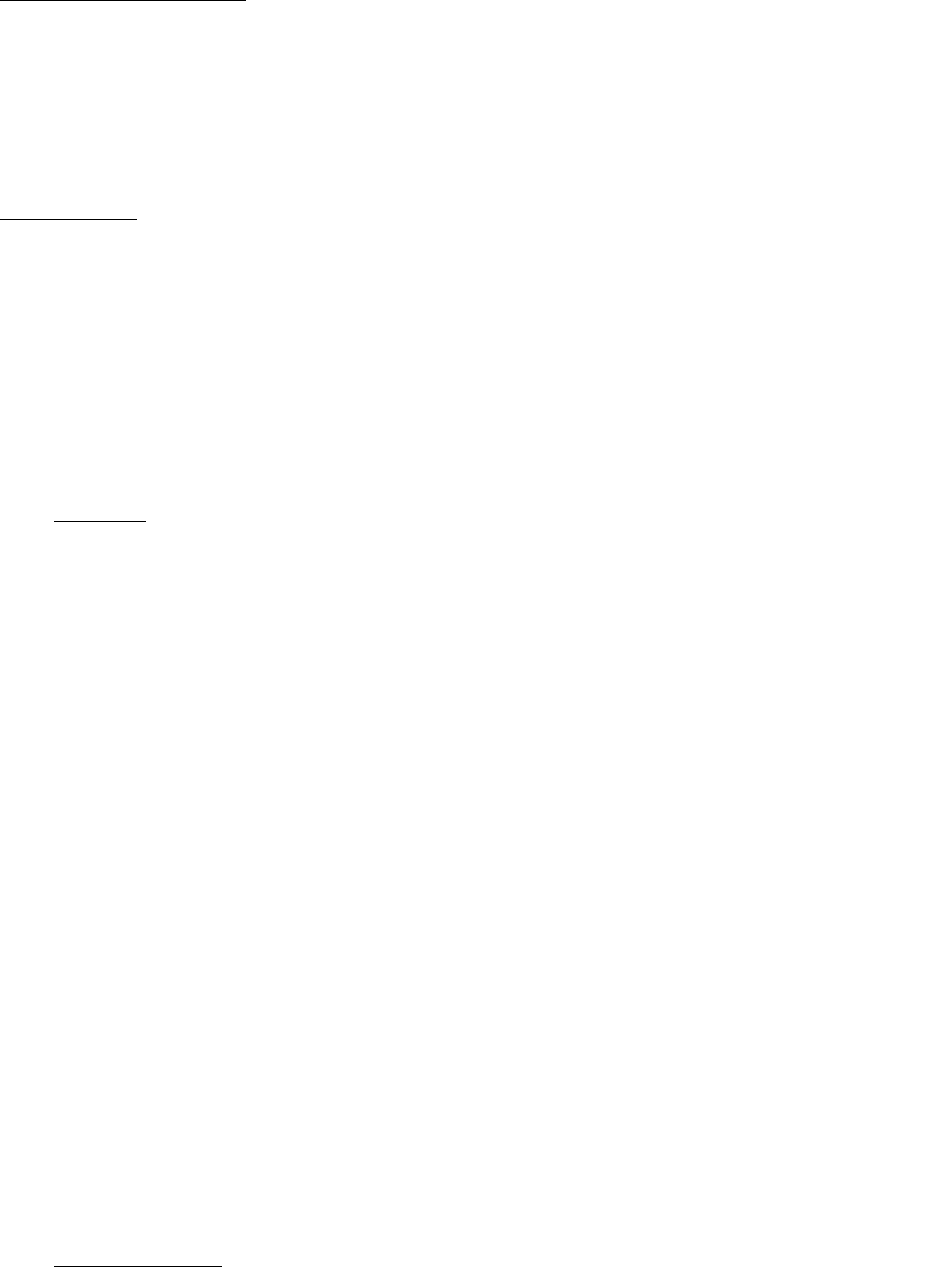
48
Simulation Activities
All admitted nursing students are expected to participate in simulation activities and consent to
video recording to optimize instruction and learning, per the School of Health Science
requirements.
9/13 TF/DON
Dress Code
Students will be expected to maintain dress standards required by the H.E. Stuckenhoff
Department of Nursing. These include the highest standards of cleanliness, neatness, professional
taste, and safety. Students who do not adhere to these standards may be requested to leave the
clinical or laboratory area and absence time will accrue. If you have any questions about the dress
code, please see an instructor for clarification.
Uniforms are to be worn in all lab, simulation and practicum settings unless otherwise
indicated.
1. Uniforms
A. Casper College ReNEW curriculum uniform tops and black scrub pants may be
purchased through the SNA. Black scrub pants may also be purchased through other
uniform outlets. Supportive, non-slip, solid black shoes and solid black socks are also
required as part of the uniform.
B. Uniforms must be neat, clean and wrinkle-free.
C. No light or see-through fabric is allowed. No bare midriffs.
D. Fit should be appropriate to the size of the individual. The pants hem cannot be touching
the floor when standing.
E. Undergarments, chest hair, cleavage and/or gluteal cleft, should not show when leaning,
squatting or bending over. No bikini or thong underwear is allowed.
F. Black, red, or white long- or short-sleeved turtleneck or crew neck undershirts without
logos or advertisements may be worn under the uniform tops for additional warmth if
needed.
G. Students are required to follow the dress code during practicum experiences, simulation
and all campus lab activities including checkouts.
H. Community appropriate attire with a lab coat will be worn to experiences at selected
community-based agencies when picking up assignments and when attending
professional activities per instructor directions. Business casual attire is appropriate.
Business casual includes:
1. Shirt with a collar, or polo style.
2. Sweater
3. Slacks
4. Chinos or Dockers
5. Skirts (at or below the knee in length)
6. Loafers or lace-up shoes (must be closed-toe)
2. Shoes and Socks Solid black shoes with a low or medium heel are required. Laces must be
black. The toe must be closed. Black rubber soles and heels are preferred. Solid black socks
must be worn with uniforms

49
4. Lab Coats
White or black scrub jackets or white lab coats maybe worn. Sweaters, sweatshirts or hoodies
may not worn in client care areas.
5. Personal Hygiene
A neat, clean, fresh-smelling person is extremely important to the professional demeanor of
a nurse. No perfume or heavily perfumed aftershave is to be worn, and no lingering odors
of any kind are allowed on the skin or the breath. Such odors include, but are not limited to:
tobacco products, topical medications, ointments or salves, and foods.
6. Cosmetics
These are to be used in moderation for daytime wear. Fingernail polish must be free of chips
and accessories. Natural fingernails should be shorter than a 1/4in in length and neatly
trimmed. No artificial nails are permitted.
7. Hair
Hair, including facial hair, must be neatly trimmed, clean, styled for safety, and if shoulder
length or longer, contained to avoid client contact. *No yarn ties, ribbons, or scarves are
allowed. Clips or scrunchies are acceptable. Solid white, black or red headbands, no greater
than 2 inches wide, are allowed. All students' hair must be of a natural color; looking natural
even if it is not actually the student's natural color. Extremes in style and color must be
avoided. No distracting hair is allowed.
8. Jewelry
♦ Watch - must be worn with either a digital or sweep second hand.
♦ Piercings - A maximum of two pairs of post studs may be worn in the ear. A single
small stud may be worn in the nostril. No other visible body piercings (including
tongues) are allowed. Gauge earrings must be removed and a solid flesh or clear
retainer must be placed.
♦ Rings - a plain wedding band may be worn. No rings with elevated stones or ornate metal
work are acceptable and only one ring may be worn on each hand.
♦ Bracelets - no bracelets will be worn.
♦ Necklaces - small, neat chains and pendant necklaces that will not come in contact with
the client or become entangled during direct client care may be worn.
9. Tattoos
Tattoos are allowed to be visible provided the tattoo(s) are not excessively large or
considered offensive by faculty, co-workers or patients. Faculty reserves the right to
determine if a tattoo is too large or offensive and will require the student to cover the tattoo
during clinical hours. In the event that clinical site policy defines stricter guidelines, the
clinical site policy will prevail. (TNF 3/7/19)
10. Identification Badge, Incidentals
The identification badge is to be worn on the uniform with the Casper College patch.
Students must each have a black pen, a pair of bandage scissors, protective eyewear, penlight,
and a Sharpie marking pen in clinical settings. Waist packs are acceptable.

50
11. Smoking
There is to be no smoking during any clinical time. Students may not leave the clinical
setting to smoke. Students may not subject others to their secondhand smoke. Students must
refrain from smoking prior to clinical and/or clinical activities as the smoke can cling to
clothes and be an irritant to clients and others. This includes vapor devices, per college
policy.
12. In the event that clinical site policy defines stricter guidelines, the clinical site policy
will prevail. (TNF3/7/19)
Classroom Dress Code
Students will be expected to maintain dress standards required by the H.E. Stuckenhoff
Department of Nursing. These include the highest standards of cleanliness, neatness,
professional taste, and safety. Students who do not adhere to these standards may be requested
to leave the classroom, clinical or laboratory area and absence time will accrue. If you have any
questions about the dress code, please see an instructor for clarification.
Classroom:
A. Students are required to follow dress code when in the classroom setting, outside
of clinical lab time.
• See-through fabric is not allowed.
• Bare midriffs or large holey fabric on shirts is not allowed.
• Fit should be appropriate to the size of the individual.
• Undergarments, chest hair, cleavage and/or gluteal clefts should not be
visible.
• Shorts and skirts should be no shorter than mid-thigh.
• If jeans are worn with holes in them, the holes must not be higher than
mid-thigh.
Medication Administration Recommendations for Students
Medication Error defined: any preventable event that may cause or lead to inappropriate
medication use or client harm while the medication is in the control of the health-care professional,
client, or consumer. (National Coordinating Council for Medication Error Reporting and
Prevention)
1. Identify Six (6) rights of Medication Administration (per Math for Meds 11
th
ed):
a. Right Drug
b. Right Dose
c. Right Route
d. Right Time
e. Right Patient
f. Right Documentation
(Revised 6/20/16 TNF)
2. Student to demonstrate triple check with each med:
a. Read the MAR & select the drug
b. Directly compare drug to MAR
c. Final check variable by unit and faculty.
3. Identify client prior to administration per facility policy.
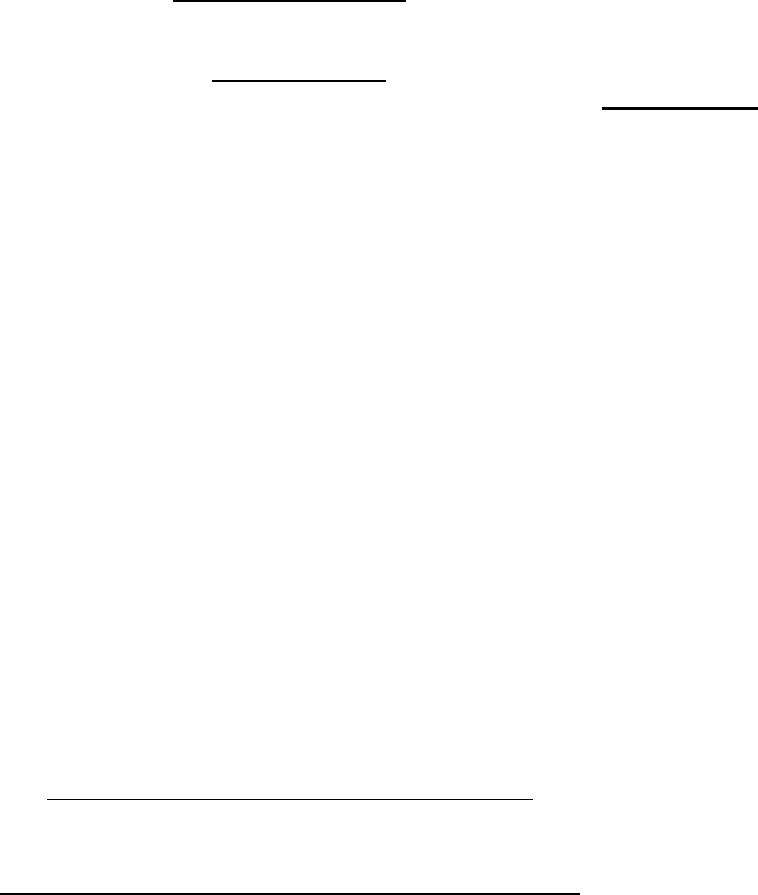
51
4. In an acute care setting, any cardiac, antihypertensive, or pain medications should have
appropriate assessments completed immediately prior to administration of medications.
Follow parameters. Consult instructor with VS and parameters prior to administration.
5. Student must double-check all new orders before pursuing action.
6. Student must report all abnormal findings to instructor and assigned nurse.
7. Student will inform instructor of any errors found and instructor will notify appropriate unit
staff and fill out occurrence report at facility of college per policy.
Reviewed – 8/18 – TNF
Estimated Expenses
Prospective students should refer to the current Casper College catalog for tuition and
fee rates. Please note ATI fees are non-refundable. In addition to tuition and fees and
required laboratory supplies, the following expenses are estimated for the first semester
of the nursing program:
♦ Background check
♦ Drug Screen
$ 80+
$ 40
♦ Books and online support programs (used through
program)
$ 1500
♦ Supplies
$ 50
♦ Uniforms and lab coat
$ 200
♦ Lab kit / Lab and ATI fees
$ 350
♦ Watch with digital or sweep second hand
$ 30
♦ Stethoscope
$ 20
♦ Eye protection
$ 12
♦ Bandage scissors
$ 7
♦ Sharpie
$ 2
♦ Chicken pox titer
$ per individual lab
♦ Chicken pox vaccine x2 (available at Public Health
Dept.)
$ 100 each
♦ Hepatitis Titer
$ per individual lab
♦ Hepatitis immunization series
$ 90
♦ MMR Titer
$ per individual lab
♦ MMR Vaccine
$ 50
♦ Health insurance
Varies with carrier
Casper College provides at no expense to students, liability (malpractice) insurance while
nursing students are engaged in their clinical laboratory activities. As is stated in the
catalog, students are responsible for their own transportation and its related expense.
Estimated expenses for the second semester include:
♦ Books and supplies
$ 200
♦ Lab kit// Lab and ATI fees
$ 500
Finally, third and fourth semesters estimated expenses include:
♦ Books and supplies
$ 50
♦ Lab and ATI fees
$ 300
♦ Health insurance
♦ Background check update if needed
Varies with carrier
$ 40
♦ Cap and gown fee
$ 30
♦ Application for nursing license fee + background
check
$ 200
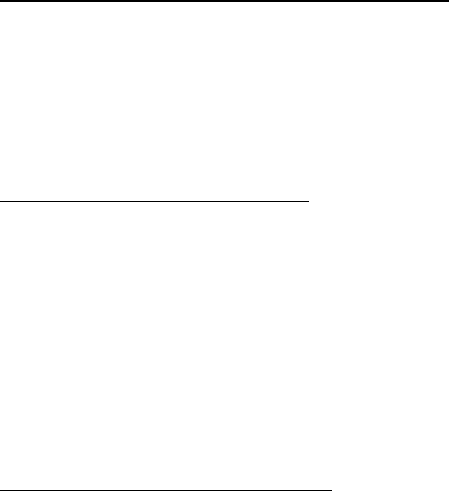
52
♦ NCLEX-RN exam
$ 200
♦ Pinning ceremony-depends on class decisions
?????
If you are applying for financial assistance you may be eligible for an increase to your
expense budget based on the above estimated expenses. Please contact the Office of
Student Financial Assistance for instructions on how to request an expense review.
Revised S,G: 7/27/16 DON
CNA Certification and LPN Licensure
It is highly recommended that students renew or maintain their CNA certification or LPN licensure
until they have confirmation passage of the NCLEX-RN.
Revised – G,S; 11/11 – DON
Math Competency Policy
The math quizzes and competency exam are not accommodated. Per the core performance
standards, a student must be able to perform critical thinking in a timely manner.
Sources that are available to assist the student in preparing for success on the math test include:
the Dosage Calculation textbook, ATI and the Math Lab.
Revised- DON per TNF grading policy changes 5/6/16
Student Presentation Policy
A student who earns two unsatisfactory grades for clinical performance and/or clinically related
assignments or who has exceeded absence time will automatically be reviewed by the course
instructors. However, due to the critical nature of some aspects of nursing care, one unsatisfactory
rating may necessitate faculty review. The review will be based on the performance of course
outcomes. The student may bring a support person (i.e. family member, friend, or peer) for
nonverbal personal support. No recording (audio/visual) is allowed since this is an informal
process. As a result of the presentation students will receive one of the following 3 options:
1. No conditions and may continue in the course
2. Placed on probation with specific conditions, the student will:
a. be told the length of the probation period decided upon
1) A student may be placed on probation no more than twice during the four semesters of
the nursing program.
2) Probation may continue into the next semester
3) If the probationary period extends into the next semester, the student will meet with a
member of the current and subsequent semester faculty at the beginning of the new
semester to review the probation terms.
b. be advised of his/her strengths and weaknesses and the specific course outcome/s that the
student is not fulfilling satisfactorily
c. be given written specific conditions and/or recommendations for improvement in clinical
performance
d. sign a statement that he/she has seen the conditions of probation report in writing, and that
he/she agrees to the plan

53
e. be either taken off probation at the end of the designated period or receive a clinical “F” if
insufficient progress is demonstrated.
f. breach of probation is an automatic unsatisfactory and presentation.
3. Receive a clinical failure in the course
a. if the course instructors determine that the student cannot meet the outcomes an
unsatisfactory clinical rating with an “F” in the course will be earned and the student will
not be allowed to continue in the course or the nursing program. If a clinical failure is
earned prior to campus withdrawal date, the student will be allowed to withdraw from the
course, with the understanding the s/he cannot return to the program. College mechanisms
for due process are always available to the student.
Reviewed F,S – 12/16 – EC
Appeal Process
1. A decision reached by an instructor or the semester faculty and the sanction(s) imposed may
be appealed by the student to an appeal board within 24 hours of the decision (excluding
weekends). Such appeals must be in writing which shall contain any relevant supporting
documentation, and shall be delivered to the director of nursing for review by an appeal board.
2. An appeal may only be filed for one or more of the following purposes:
Clinical failure in a course resulting in course failure
Alleged cheating in the classroom or clinical
3. An appeal board will be instituted of at least five persons. Two nursing faculty (from different
semesters) will be chosen by the student, two nursing faculty will be appointed by the director
of nursing, and one health science school non-nursing faculty will be appointed by the director
of nursing. The director of nursing will not be included in the appeal board proceedings.
4. The appeal board shall have latitude to determine the process by which it will review the
information. Following deliberations the board shall determine by majority vote whether to
uphold or deny each basis for appeal.
5. The board-selected chair will prepare a written communication which shall include a
declaration as to whether or not each basis of the appeal was upheld or denied and a brief
description of the board’s rationale for each action.
6. This document shall be submitted to the director of nursing within 5 working days following
the appeal, whom upon review of the case, may leave the sanction(s) unchanged or may reduce
the sanction(s) imposed with a rationale for the decisions made.
Revised – S – 10/08—EC-Update 8/17
Academic Progression Policy
To progress in the nursing program, the student must:
1. Attain a "C" or better in all courses required for the Associate Degree in Nursing (ADN).
2. Achieve a satisfactory clinical rating in all nursing courses.
3. Maintain core performance standards for nursing
4. Maintain the college and departmental standards of student conduct.
Revised 03/16 CC/TNF
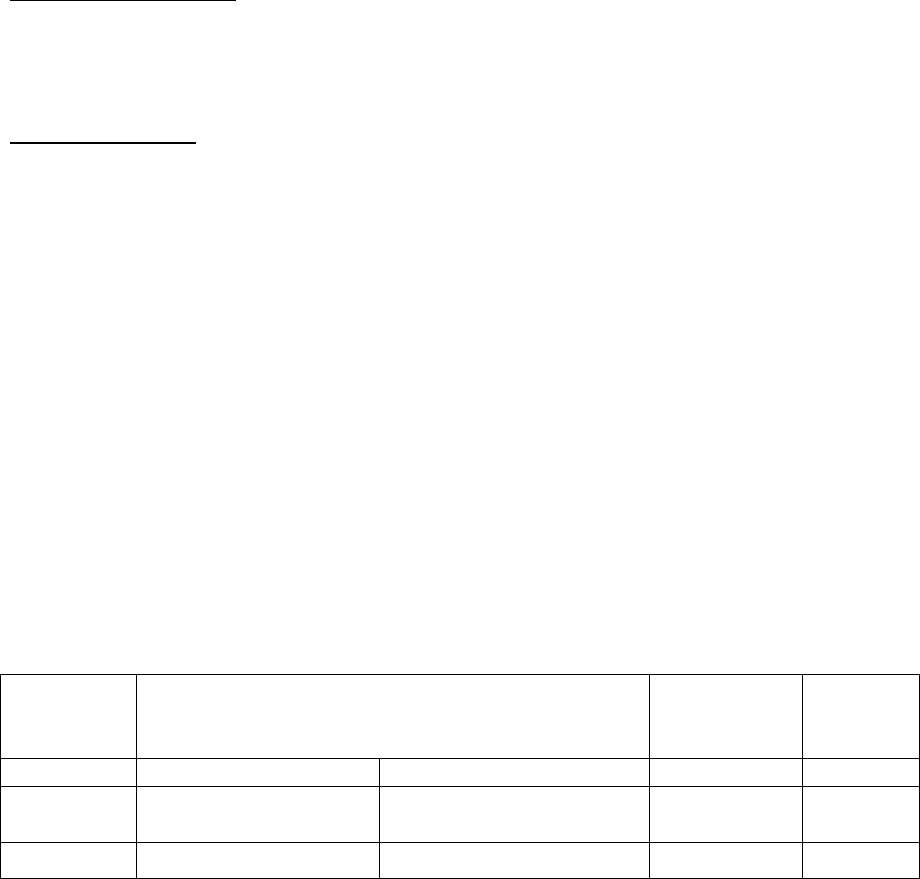
54
Withdrawal Policy
Withdrawal from any NURS course impacts progression to the next semester, constituting
withdrawal from the nursing program. Policies and procedures for re-entry apply.
Re-entry Policy
Students can re-enter the nursing program one time only. All NURS courses must be
successfully completed in sequence within six semesters of initial entry to the program.
Each application for re-entry will be considered on an individual basis and is subject to space
available in the appropriate course. In the case of limited space available, candidates for re-entry
will be admitted based on their nursing degree GPA.
Applicants who wish to continue from the point of departure from the ADN program must apply
and re-enter within one calendar year or must apply to re-enter the program from the beginning.
The “Request for Reentry” application must be completed and given to the nursing program
director at the time of withdrawal or failure. It is strongly recommended that such applicants seek
employment or experiences that will require the use of basic nursing skills during this interim.
Applicants will be required to fulfill all recommendations made at the time of withdrawal or
failure prior to applying for re-entry.
Students who are not admitted to the subsequent semester must attain the required scores on all
of the re-entry exams, as listed in the table below. Re-entrance exams can only be taken once.
If the required score is not achieved, the student must apply to re-start the program if eligible.
Semester
to
Re-Enter
Re-Entry Exam/Accepted Level
Math
Competency
Written
Skills
Test*
Semester 2
ATI Fundamentals
2 or above
80%
75%
Semester 3
PN-Comprehensive
Predictor
≥ 95% probability of
passing the NCLEX-PN
80%
75%
Semester 4
ATI Medical-Surgical
2 or above
90%
75%
*Anyone with less than 75% on the written skills test will be required to perform select skills
checkouts in the lab. If a student is not successful on any skills checkout, there is NO
remediation. The student is not eligible for re-entry into the upcoming semester.
In all situations of re-entry into the nursing program, please be aware of the following:
1. When the student re-takes a class, the most current grade, higher or lower, will replace the
previous grade earned.
2. Federal financial aid may be jeopardized.
3. If the student is using VA benefits, they will probably not be able to receive benefits for
previously earned credits.
4. Proof of meeting the departmental and community agency requirements must be provided
prior to attending clinical.

55
Second Admission to the Program
A student may choose to apply to re-start the nursing program from the beginning if the student:
1. Did not apply for re-entry into the unsuccessful semester after failing or withdrawing from a
required course.
2. Has been unsuccessful in the re-entry process.
3. Students on the alternate list who are reentering the program may be admitted up to 2 weeks
of the start of the semester if space becomes available.
There will be no re-entry or admission/re-admission to the ADN program
when a student has any of the following:
• Failure to meet course outcomes based on clinical performance.
• Two failures and/or withdrawals in a nursing course.
• Demonstrated violation of professional ethics by being under the influence of alcohol and/or
in violation of the Controlled Substance Act per Casper College and program policies.
• Demonstrated violation of the Casper College or Nursing Student Code of Conduct
• Inability to meet Health Science Core Performance Standards or clinical accessibility
requirement.
Revised 04/16 CC/TNF
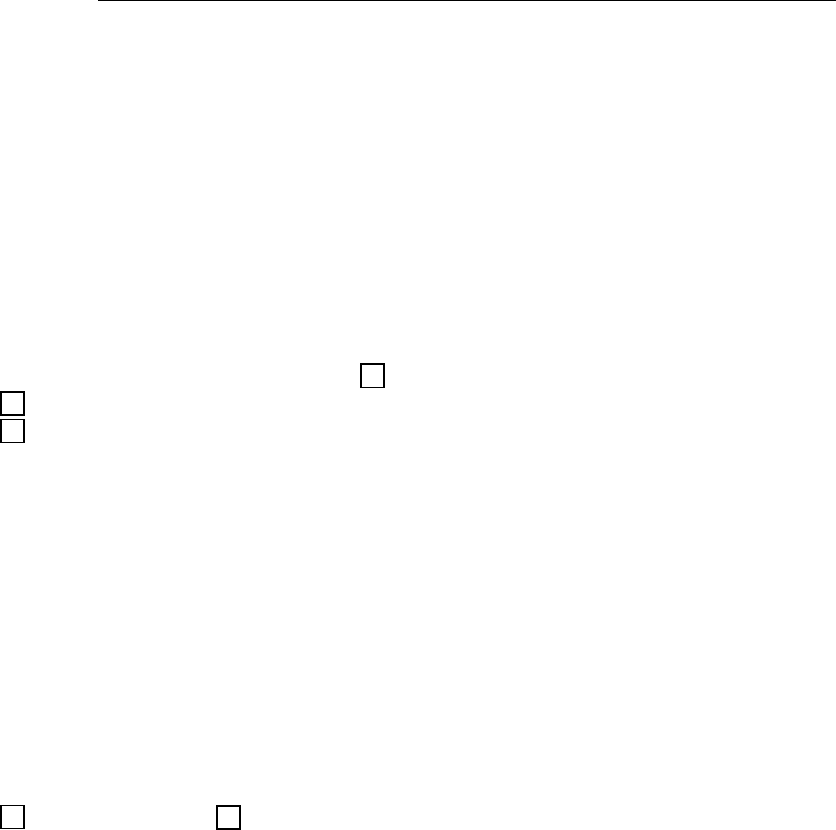
56
Request for Re-entry to the Casper College Nursing Program
Name: _____________________________ Date: ________________
Current Address: _______________________________________________________
Street City State Zip
_______________________ _____________________ ____________________________
Phone Number (include area code) Cell Number (include area code) E-mail address
Requesting to enroll in nursing (course numbers) _____________________________
Reason for previous stop-out ______________________________________________
Success Plan: Your plan for successfully completing the nursing program on your return
________________________________________________________________________
Employed as a [] C.N.A. LPN
Yes Number of hours work per week ________
NO. Briefly explain why ______________________________________________
Student Signature: _________________________________________
Testing Results:
Re-entry exam/score ________________________ Math ______ Skills
________________
_______Copy of C.N.A. certificate OR _____ LPN license
Director to Complete:
After reviewing the student’s success plan, comment on the student’s potential for success and any
further interventions you believe will be helpful to the student.
______________________________________________________________________________
Director Recommendation:
Approved Not Approved ________________________________
DON Signature Date
Reason for denial _______________________________________________________
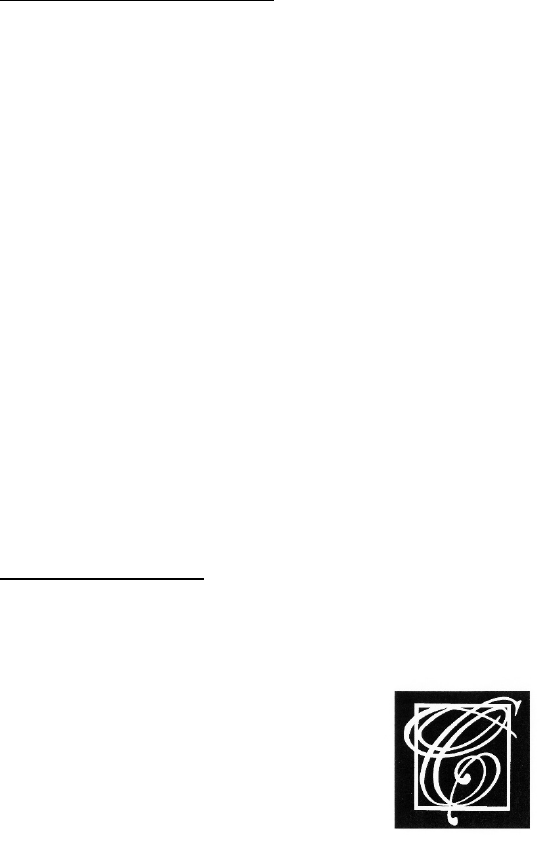
57
Graduation Guidelines
1. The nursing student should request a degree check (Academic Evaluation) at the start of his/her
third semester.
Go to Enrollment Services and request a degree evaluation for an Associate
Degree in Nursing from the Student Records Specialist.
It can take 3-4 weeks to complete a degree check.
2. The student must submit an “Application for Graduation” to Enrollment Services to graduate.
The Director of Nursing will provide you with instuctions for online application. The specific
date will be posted on the GINS website in Moodle, and in the NURS 2400 course prior to the
deadline and for the PN Certificate in NURS 1200.
3. If the student needs copies of the academic transcript sent to other higher education institutions
or the state board of nursing, refer to Casper College transcript request policy.
4. Refer to the current Casper College catalog for detail on graduation requirements.
Revised – F,S – 1/19- DON
BSN Completion
Refer to University of Wyoming for information and advising.
Revised 6/18-DON

58
Facilities for Instruction
The on-campus facilities include several classrooms, four well-equipped clinical lab areas, and a
multimedia center (MMC) in the Saunders Health Science Building. These facilities are available
to nursing students for both assigned laboratory time and independent study from 7:30 a.m. to 4:30
p.m. (except during scheduled lab hours for courses) Monday through Friday and additional
evening/weekend hours according to student need. The following are the rules and policies for
student use of the clinical arts rooms. See also the Health Science policy for the MMC.
1. If the clinical arts area is locked, keys may be obtained from any ADN instructor, the academic
assistant, or the director.
2. Only nursing students are permitted in the clinical lab rooms. No children, spouses, etc.
allowed.
3. No tobacco use, no eating is permitted in the clinical lab area or MMC. Drinks must be covered.
4. Equipment may not be taken from the lab areas without completing a loan form and permission
from faculty, lab coordinator or director dependent on the equipment.
5. After use, all equipment is to be returned to the proper storage area and the labs left organized.
6. Lights are to be turned off, beds left in high position, and doors closed and secured by the last
person leaving the room, regardless of the time of day.
7. Equipment found to be malfunctioning is to be labeled and given to the lab coordinator.
8. Evening/weekend hours are supervised by nursing work study in good academic standing. See
the lab coordinator or the director for the job description if interested in the position.
In conjunction with the college site, there are multiple local and state wide facilities to enhance
the clinical experience for the nursing student.
Revised 6/18 DON
School of Health Science Simulation Center
An additional educational site is the School of Health Science Simulation Center. This is a state
of the art accredited facility available for faculty to provide simulation experiences for nursing
students in each semester.

59
Clinical Laboratory Rules
Lab #1, #2 (HS 221); Lab #3 (HS 217) Lab#4 (HS 122)
1. Sign in (there is a binder with a “sign in” form on the table as you enter the
main lab [Lab #1] in HS 221).
2. NO food in lab.
3. Covered drinks only
4. No children in the Lab
5. Cell phones should be on vibrate.
6. Please straighten the lab when done for the day. This includes:
a. Beds in high position with rails down.
b. Beds, with mannequins, in low position with side rails up. Cover mannequins.
c. Return items to bedside table (if used).
d. Linen straightened.
e. Place dirty linen in cloth bags.
f. All equipment used must be cleaned, if dishwasher-safe, place items in
dishwasher and leave a note for the lab facilitator. DO NOT RUN
THE MACHINE.
g. Return all used items to the designated cabinet. There are three red
binders with cabinet lists and an alphabetical listing of all the items
available to you in the upstairs lab. Please refer to them.
They are located 1) on counter in back room;
2) by the sinks in Lab #1;
and 3) on countertop in the middle room.
h. Use Sharps containers.
i. If spills occur, use appropriate cleaner for spill and/or notify custodian.
7. Goggles will be required in the campus lab when there is a possibility
of exposure to blood or body fluids.
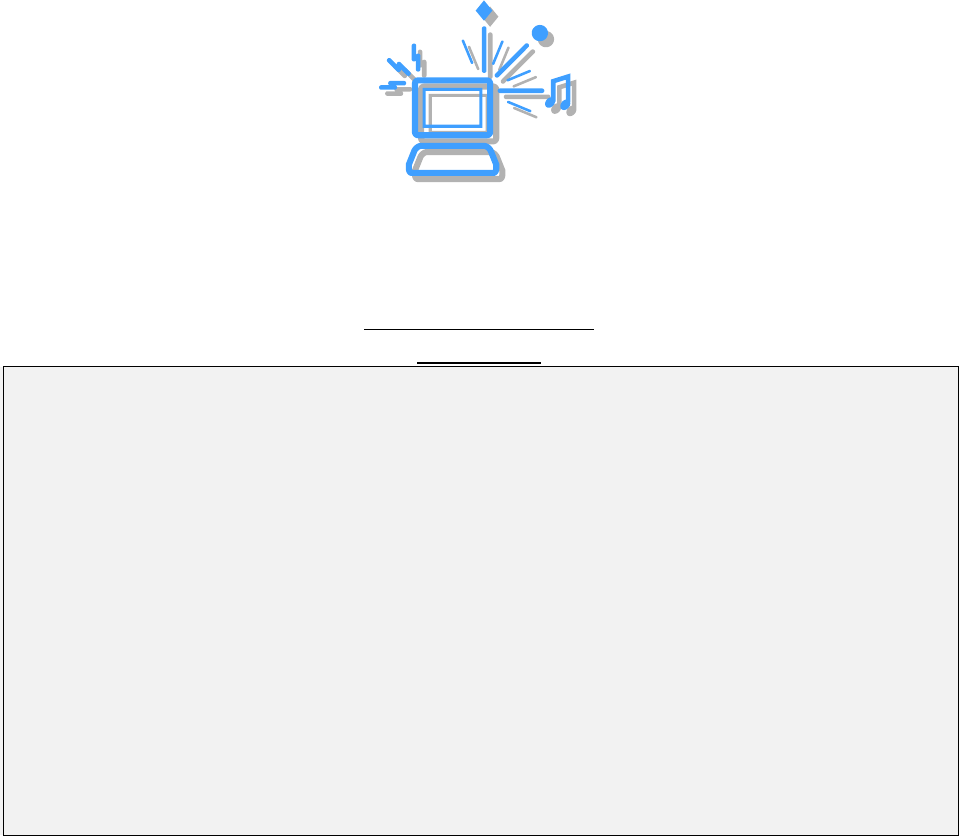
60
CASPER COLLEGE
HEALTH SCIENCE DEPARTMENT
Multimedia Center
Procedure
PURPOSE: The purpose of the Multimedia Center (MMC) is to provide students with an environment
that assists in providing technical instruction in Health Sciences.
RESPONSIBILITY: The Health Sciences Division is responsible for implementation of the following
procedure. Refer questions concerning this procedure to the Nursing Department Resource Committee.
SECURITY:
The door to the MMC (HS 211) is now unlocked for student use unless otherwise posted.
The storage area (HS 211A) will remain locked at all times. Doors are not to be
“propped” open for any reason!
HOURS: The MMC will be accessible to students from 7:30 a.m. to 4:30 p.m. Monday through
Friday. If a student lab assistant is employed, the MMC will be open during those hours
that the lab assistant is working.
Reviewed – S,4/09-RC

61
MMC--The Rules
To better serve you the MMC will be unlocked from
7:30am-4:30pm, M-F unless otherwise posted. YOU ARE
REQUIRED TO ABIDE BY THE FOLLOWING RULES:
No viewing of pornographic sites.
No installation of programs or downloading of non-course related
files.
No using the scanner as a copier.
Student will provide their own paper for printing copies.
The lab may not be accessible to students if reserved by another
Health Science Department.
No printing of non-course related materials (i.e. jokes, personal
email, etc.)
No food allowed inside the MMC.
Drinks are permitted with screw on/non spill lid.
DO NOT JUST log off. SHUT DOWN computers before you
leave the MMC.
Revised 6/18 DON
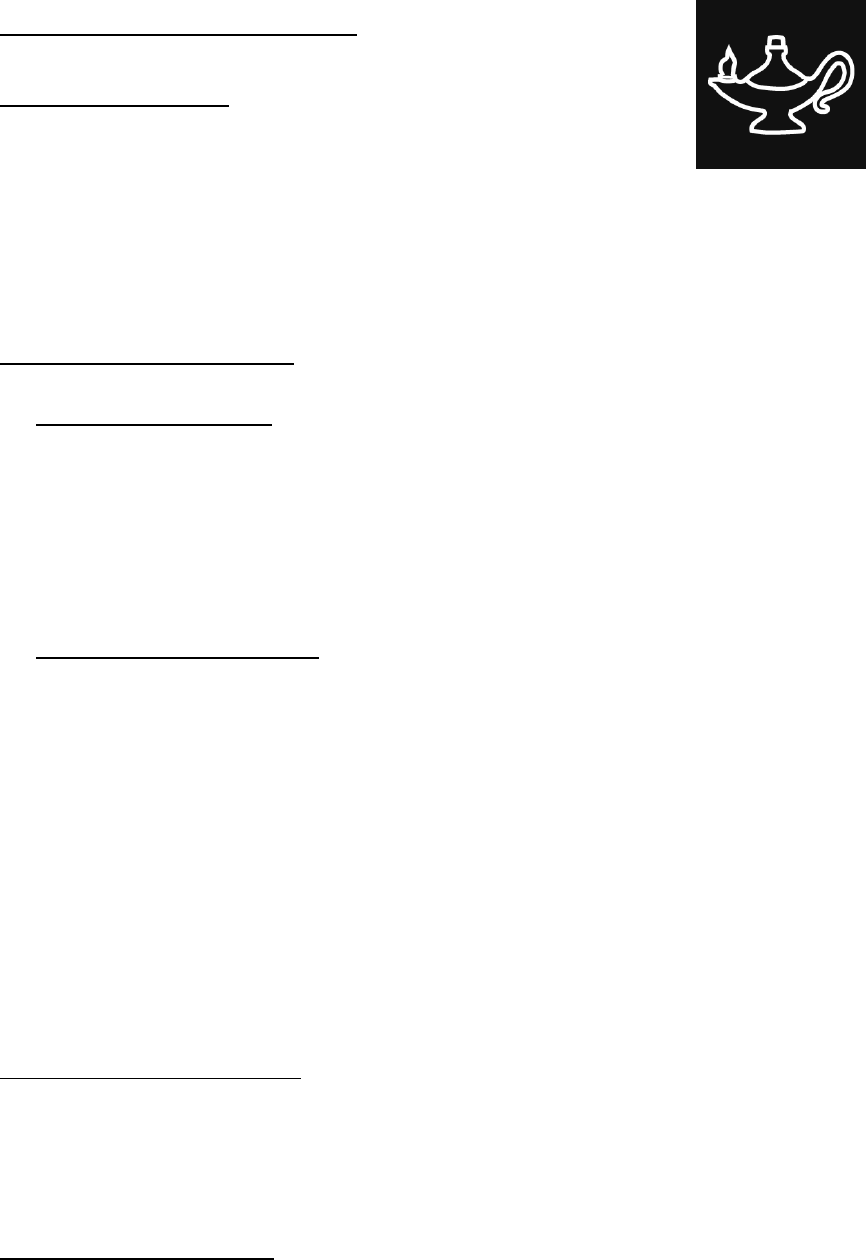
62
Student Services/Activities
Academic Advising
Each nursing student is assigned a faculty advisor who will be
interested in the student's progress and development. Individual and group
conferences may be scheduled between students and advisors to discuss
matters of scholarship, credit hours, and requirements for completion of courses. Students register
with their advisor each semester. Students may check with Admissions Office or nursing
department personnel to determine their current advisor. Nursing Faculty may be contacted via email,
phone or during posted office hours.in
Student Wellness Center
Counseling Services
Services include individual, couple, family, and group counseling, along with consultations
and crisis intervention. These services are free and confidential (with the exception of child
abuse or risk of life.) Appointments can be made in person with the Wellness Center
receptionist in Student Union/University of Wyoming at Casper building, room 202, or by
calling 268-2267. Office hours are 8:00 a.m. to 5:00 p.m., Monday through Friday.
Wednesday evening appointments are also possible, based on counselor availability.
Student Health Services
The Student Health Service office is maintained in Student Union/University of Wyoming at
Casper building, in the Wellness Center, room 202. Services, most of which are free, include
the following: physical exams, administration of immunizations and CLIA - waived lab tests,
strep throat testing, blood pressure monitoring, urinalysis, emergency first aid care, office
visits, coordination of medical care with community resources, personal health education
programs and consultations (individual and group), and on a weekly basis, a women’s
specialty clinic and a three-hour general physician clinic. The women’s specialty clinic (by
appointment Wednesday afternoons) and physician ordered blood testing are done on a
sliding/reduced fee basis. Although the service is typically open from 8 a.m. to 4 p.m.,
Monday through Friday, the general physician’s drop-in clinic begins at 5:30 p.m. on
Wednesday evenings during the fall and spring semesters. For more information, call 268-
2263.
Accommodative Services
Any student who has need for accommodations in any courses must go through Accommodative
Services, Disability Services Counselor, 268-2557, GW344. An accommodations letter must be
presented to each course instructor at the beginning of each semester. Qualified students will
receive accommodations for classroom tests.
Other Student Services
Refer to the current college catalog and college student handbook for detailed explanation of other
services.

63
Student Organization
Nursing students are encouraged to participate in the total activities of the college, which includes
the Casper College Student Nurses’ Association (CCSNA), as preparation for the professional role.
Students have attended national conferences in the past. Some of the financial support of these
activities comes from the nursing department and the college. Criterion for selection of students
to attend the conference(s) is included in this handbook.
See the current catalog for organizations available for the general student body.
Reviewed-S,G-10/08-EC
CCSNA Guidelines for Attending Conferences
To qualify for financial support toward attending the annual NSNA conference, students must
meet the following requirements at the time that funds are dispersed:
1. Submit the CCSNA conference attendance application form to the faculty sponsors
2. Submit documentation of participation in 10 hours of community service activities
3. Submit documentation of participation in SNA group fundraising activities totaling 10 hours
4. Have a current course grade of C or better in all required nursing courses
CCSNA faculty sponsors will verify that all of the conference candidates have met the above
conditions. CCSNA faculty sponsors will submit the required CC forms for student attendance.
Maximum funding available for students will be based on the amount of funds available for
conference attendance (including designated funds available from SNA donations and
fundraising activities, student senate, and departmental funds) and the number of students
eligible to attend the conference. Students will be responsible for their NSNA membership fee as
well as the cost of the NCLEX review (if they choose to attend that offering), and should
anticipate additional out-of-pocket expenses.
Funding requests will be made to the Student Senate per their guidelines, as well as to the
nursing department Resource Committee for assistance. Requests for funding by the Resource
Committee must be accompanied by evidence of application for Student Senate funds and the
available SNA fundraising monies designated for conference attendance.
The SNA will plan a fundraising activity at the national conference to return some funds toward
the following year’s conference attendance. All students attending the conference will assist in
the fundraising activity at the conference. If an individual receives funding and subsequently is
unable to attend the conference, repayment of the funds is required.
Students will submit an assignment addressing the NSNA conference objectives. A report will be
made to the Student Senate following the conference and at the spring and fall SNA meetings to
recap the NSNA conference events.
If a student selects to attend the National Student Nurses Association Conference, no absence
time will accrue as conference attendance will be considered in lieu of missed clinical time.
Reviewed –S- 3/20/09- RC

64
CCSNA Application to Nursing Conference
Name:_______________________________________________________________
Address:_____________________________________________________________
City, State, Zip:________________________________________________________
Phone: ______________________
NSNA Member #: ________________
Which conference would you like to attend?_________________________________
____________________________________________________________________
I agree to reimburse all departmental funds that were granted to me in the event that I do not attend the
above conference.
I agree to attend Casper College Student Senate meeting to present a summary of the conference.
Conference objectives will be used as an outline for the presentation.
Conference objectives as are as follows:
• Demonstrate responsibility for continued personal and professional growth by attending offerings
for continuing education.
• Describe the benefits of membership and participation in a professional organization.
• Exploration of nursing roles and various levels of entry into the profession of nursing.
• Discovery of programs for higher education and opportunities for employment.
I agree to attend conference offerings and work the SNA table, as directed by SNA sponsors.
I agree to abide by NSNA conference etiquette and CCSNA code of conduct.
Signature_________________________________ Date: __________________
Revised: 2/07 – TNF

65
NSNA Conference Objectives
Name _____________________________
• Demonstrate responsibility for continued personal and professional growth by attending
offerings for continuing education.
o List offerings attended and how they will affect your personal and professional
growth.
• Describe the benefits of membership and participation in a professional organization.
o What are the benefits of membership?
o List the times you served in the SNA booth at the conference.
• Exploration of nursing roles and various levels of entry into the profession of nursing.
o By attending offerings and visiting with other nursing students, describe nursing
roles that you found interesting.
o What different levels of entry into nursing were represented at the conference,
and how does that impact the various nursing roles?
• Discovery of programs for higher education and opportunities for employment.
o List other programs for higher education with whom you visited:
o List interesting opportunities for employment that you explored:
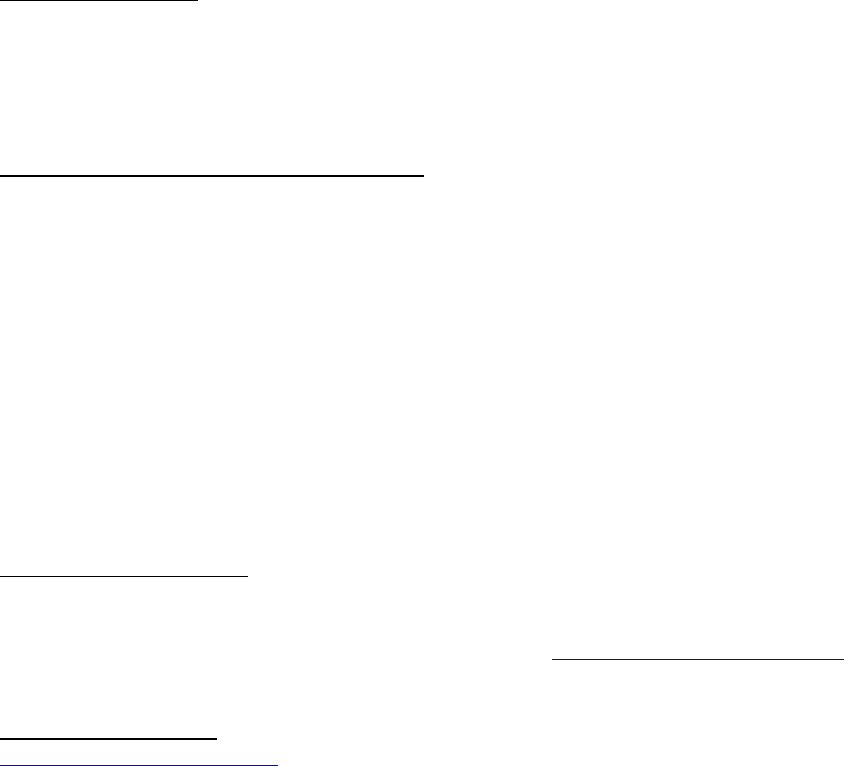
66
Lockers for Rent
Lockers located in the entry on College Drive are available for students to rent. Nursing students
who are members of the student nurse association (SNA) are given a discount on locker rental. See
the SNA bulletin board for specifics.
CCSNA Student Locker Guidelines
1. All lockers must be rented out from the CCSNA through the designated sponsor.
2. A $5.00 key deposit will be collected at the time of the rental.
3. There is a maximum of 2 persons to each locker.
4. The individual(s) that have contracted out the locker are authorized to use the locker.
5. You may not store drugs, alcohol or other hazardous items in the lockers.
6. In order to receive refund of the $5.00 key deposit, your locker(s) must be cleaned out,
inspected, with the keys returned to the sponsor prior to finals week of last paid semester. HS
students will not be permitted to take their Health Science final(s) unless the key(s) have been
returned.
7. No refunds will be given after 3 weeks of initiating the contract.
8. There will be no pro-rating of locker fees.
Nursing Scholarships
The following scholarships require an application form from the Student Financial Assistance
Office (SFA). Please see the Casper College Web site at www.caspercollege.edu/finaid or check
with the SFA office for more information on these scholarships.
Scholarship Listings:
http://stars.caspercollege.edu
Revised 5/11 – DON

67
CASPER COLLEGE
H. E. STUCKENHOFF DEPARTMENT OF NURSING
Policy for Dealing With Blood Borne Pathogens in Clinical Agencies
A. Nursing faculty and students of Casper College will follow the Infection Control Policies of
the clinical agency in which they are currently engaging in the educational process.
B. Nursing faculty and students will routinely use appropriate Standard Precautions with all
clients, equipment and potentially infectious materials to prevent skin and mucous membrane
exposure to blood and body fluids including:
1. the routine use of suitable eye protection and the use of other personal protective
equipment/apparel as deemed appropriate by faculty and/or agency staff.
2. disposal of all sharps in an approved sharps container and of all disposable
contaminated materials in red isolation garbage bags per agency policy.
3. refraining from direct client care and the handling of client-care equipment until
exudative lesions or weeping dermatitis is resolved.
4. the immediate reporting of a blood or body fluid spill to the instructor and/or staff in
order that agency procedures may be implemented.
C. Nursing faculty and students will exercise the following exposure procedure when necessary:
1. In the event of a non-high risk needle stick injury or non-critical contact with blood or
body fluids, the faculty member or student will report to the Casper College Health
Service as soon as possible.
2. If the needle stick or contact with blood or body fluids is deemed critical by the
instructor and/or staff, faculty members or students will immediately report to their
health care providers or the hospital emergency room to institute appropriate measures.
Such treatment will be rendered at the expense of the individual student.
3. Any needle stick injury or other contact with blood or body fluids will be reported to
agency personnel immediately.
D. The nursing department will keep records of immunizations and testing required by clinical
agencies to meet the dictates of regulatory agencies and supply such records to clinical
agencies as requested and necessary.
Wyoming State Board of Nursing Application for Licensure
Refer to the WSBN website for licensure questions.
* Students need to know that nursing is a high risk occupation, particularly in the areas of infectious
diseases (including HIV) and substance abuse.
68
INDEX
Academic Advising ……………………………….
62
Health Science Core Performance Standards
Academic Progression Policy ……………………..
53
Table 1 …………………………………….
7
Accessing Grades – MyCCInfo ………………………
42-43
Hepatitis Series …………………………………..
44
Accommodative Services …………………………
62
Injuries/Illness ……………………………………..
45
Admission, Progression and Core Performance
Introduction to H.E. Stuckenhoff Department of
Standards …………………………………..
6-7
Nursing ……………………………………
14
Agency Requirements Department and Community
44-45
Latex Allergy Policy - Student ……………………
45
Announcements ……………………………………
43
Letters of Recommendation and Information ……
47
Appeal Process …………………………………….
53
Location & History – Nursing …………………….
14
Assessment Results ………………………………….
17-18
Lockers for Rent …………………………………...
66
Associate Degree Nursing ADN Curriculum Plan
LPN Licensure …………………………………….
52
ReNEW ……………………………………..
24-25
Math Competency Policy ………………………….
52
Attendance ………………………………………...
33-34
Medication Administration Recommendations …..
50
Background Check ………………………………...
32, 44
Misconduct Policy …………………………………
31-32
Background Check Policy Statement ……………..
10
MMC – The Rules …………………………………
61
Blood Borne Pathogens in Clinical Agencies Policy
67
MMR ………………………………………………
44
BSN completion …………………………………...
57
Multimedia Center (MMC) Procedure ………..…..
60
CCSNA Application to Nursing Conference ………..
64
NSNA Conference Objectives …………………….
65
CCSNA Guidelines for Attending Conferences ……...
63
Nursing Scholarships ……………………...............
66
CCSNA Student Locker Guidelines ………………….
66
Organizational Chart …………...............................
28
Cell Phone Use …………………………………….
43
Other Student Services …………………………….
62
Channel Direction …………………………………….
29
PPD ………………………………………………..
44
Channels for Resolution - School of Health Science …
29
Presentation Policy ………………………………...
52-53
Chemically Impaired Health Science Student
Procedure for Alleged Chemically Impaired Health
Policy Statement ……………………………….
10-11
Science Student ……………………………
11-13
Chicken Pox ……………………………………….
44
Proof or Requirement for Semester I, Advanced
Civility Statement ……………………………........
8
Placement & Readmission Students …………...
44
Classroom Evaluation ……………………………..
43
Re-entry Policy ……………………………………
54
Clinical Accessibility Policy Statement …………...
9
Request for Re-Entry to the Nursing Program …….
56
Clinical Clock Hours vs. Clinical Credit Hours …...
35
ReNEW ADN Program Outcomes ………………..
16
Clinical Evaluation ……………………………………
43
ReNEW Associate Degree in Nursing – Benchmark
Clinical Information ……………………………….
43
Curriculum ………………………………...
24-25
Clinical Laboratory Rules …………………………
59
ReNEW Conceptual Framework ………………….
19
Clinical Setting Waiver ……………………………
46
ReNEW Mission Statement ………………………
15
CNA Certification …………………………………
52
ReNEW Philosophy ……………………………….
15
Code of Conduct …………………………………..
30-31
ReNEW Vision ……………………………………
15
Committee Members ………………………………
26
Scholarship Listings ……………………………….
66
Comprehensive Assessment and Review Program
Second Admission to the Program ………………..
55
(CARP) …………………………………….
35
Simulation Activities ………………………………
48
Confidentiality …………………………………….
33
Simulation Center …………………………………
58
Counseling Services ………………………….……
62
Smoking …………………………………………..
50
CPR ………………………………………………..
44
Social Media Policy Statement ……………………
9-10
Digital Learning Academic Integrity Statement …..
8
Student Agreement & Consent ……………………
70-72
Dress Code ………………………………………...
48-50
Student Health Services …………………………..
62
Dress Code – Classroom ……………………………..
50
Student Organization ………………………………
63
Driver’s License …………………………………...
44
Student Representation to Committee ……………..
26-27
Driver’s License & Automobile Liability
Student Services/Activities ………………….. …..
62
Policy Statement …………………………..
9
Student Wellness Center …………………………..
62
Drug Screening Policy ……………………………
33
Study Guidelines & Test-Taking Strategies ……….
37-42
Drug Testing Policy Statement …………………..
10
Testing Policies ……………………………………
36-37
Education packet …………………………………
44
Testing Policy Final Exam for Semester 2 and 4 ….
35
Emergency Response Guide ………………………
8
Title IX …………………………………………….
8
Estimated expenses ………………………………..
51-52
Transferring and Lifting Patients/Residents …
44-45
Facilities for Instruction …………………………...
58
Vehicle Liability Insurance ………………….
44
Final Exam Testing Policy for Semester 2 and
Welcome …………………………………………..
5
Semester 4 Nursing Students ……………
35
Wellness Center ……………………………..
62
Flu Vaccine …...…………………………………...
44
Withdrawal Policy …………………………………
54
Glossary of Terms …………………………..........
20-23
Wyoming State Board of Nursing Application for
General Testing Policies ………………………….
36-37
Licensure ……………………………………….
68
Graduation Guidelines …………………………….
57
Guidelines for Student Cohort Representatives …..
27
Health Insurance Policy Statement ………….. …
9
Health Insurance …………………………………..
44

69
CASPER COLLEGE
H. E. STUCKENHOFF DEPARTMENT OF NURSING
Student Agreement & Consent
Please read and initial each section of this agreement and consent form, and sign and date the last
page.
Initial
_______ As a student in the School of Health Science, I understand that per Standard Precaution
Policies at the cooperating clinical agencies, I will wear either eyeglass shields or goggles
while on clinical rotations to prevent fluid splashes to my eyes.
• Goggles/eyeglass shields will be worn in any situation that could result in contact with
blood or other body fluids, i.e.:
A. Surgical procedures
B. Wound irrigation/dressing changes
C. Bronchoscopy
D. Cleaning articles contaminated with body fluid
E. Cleaning up body fluid spills
F. Working with hostile clients that may spit in your eyes
G. Withdrawing urine from catheter ports
H. Drawing blood
I. Removing tubes or procedural equipment from a client
J. During oral/dental hygiene
• Instructors may determine additional procedures or situations where the goggles or
eyeglass shields must be worn.
• I understand that I must purchase my own goggles or eyeglass shields and understand
the above requirements.
• I understand that I am responsible for this equipment. If the goggles/eyeglass shields
are lost or broken, I will be responsible for replacing them before returning to my
clinical rotation.
• I agree to use other personal protective equipment/apparel as necessary per standard
precaution policies.
_______ I give my permission for Casper College AD Nursing instructors to place my clinically related
graded assignments and/or clinical evaluations in the receptacles in the academic assistant’s
office, HS 202.
_______ I accept the responsibility of maintaining health insurance while I am attending the H.E.
Stuckenhoff Department of Nursing program.
________ I accept the responsibility of maintaining a current driver’s license and car insurance if I drive
to clinical sites while I am attending the H.E. Stuckenhoff Department of Nursing program.
________ I hereby give consent to have photographs taken of me to be used for recruitment and/or
educational purposes in the nursing program.
70
Permission to Release Information to the University of Wyoming
________ I give my permission to release my name, date of birth, and contact information to the
University of Wyoming so that they know of my interest in completing the Bachelor of
Science in Nursing (BSN). This will allow the University of Wyoming to contact me with
information about the program and offer advising as needed.
COMMITMENT TO MY PEERS AND OTHERS
_______ With our shared goal of excellence, I commit to the following:
I will accept responsibility for establishing and maintaining healthy interpersonal
relationships with you and every member of the team.
1. I will talk to you promptly if I am having a problem with you. The only time I
will discuss it with another person is when I need advice or help in deciding how
to communicate with you appropriately.
2. I will establish and maintain a relationship of functional trust with you and every
member of this team. My relationships with each of you will be equally
respectful, regardless of job title, level of educational preparation, or any other
differences that may exist.
3. I will not engage in the “3Bs” (bickering, back-biting and blaming) and ask you
not to as well.
4. I will practice the “3 Cs” (caring, commitment, and collaboration) in my
relationship with you and ask you to do the same with me.
5. I will not complain about another team member and ask you not to as well. If I
hear you doing so, I will ask you to talk to that person.
6. I will accept you as you are today, forgiving past problems, and ask you to do the
same with me.
7. I will be committed to finding solutions to problems rather than complaining
about them or blaming someone for them and ask you to do the same.
8. I will affirm your contribution to the quality of our work.
9. I will remember that neither of us is perfect and that human errors are
opportunities, not for shame or guilt, but for forgiveness and growth.
10. I will make myself available for collaboration when needed.
11. I will show respect as defined in all my interactions with others by:
Not interrupting
Listening
Allowing open dialogue
Being aware and accepting of others
Respecting your beliefs
Dealing with you directly and privately if I have a problem
Giving you my full attention
Not snapping to judgment or prejudging the situation
Being open minded
Not feeding into chaos
Avoiding the use of “killer-phrases”
Understanding that we all have a role to fulfill
Understanding the process
Addressing my issue, but then dropping it
Saying what I mean, without being mean in saying it

71
_________ In order to promote a culture of leadership, acceptance and empowerment in Nursing and
healthcare, I agree to follow these behaviors as clarification of the Health Science Core
Performance Standards, specifically: Interpersonal abilities, Communication, and
Professionalism.
________ I have read the Casper College Student Handbook for the Associate Degree Nursing
Program: Nursing Student Handbook for the H.E. Stuckenhoff Department of Nursing
which includes the School of Health Science Handbook. I fully understand the contents
and agree to abide by the policies therein.
Student Name Printed _______________________________________________
Student Signature __________________________________________________
Date ___________________________
Student may print copy of signature sheets from handbook online and retain for future
reference
Revised 5/1/14 TNF, 12/28/15, 8/12/16 DON
